Attending the Policy Dialogue were leaders of Central Ministries (Ministry of Industry and Trade, Ministry of Planning and Investment, Ministry of Science and Technology, Ministry of Natural Resources and Environment, Ministry of Information and Communications, Ministry of Finance , Ministry of Foreign Affairs, State Bank), Chairman of Ho Chi Minh City People's Committee, leaders of several Vietnamese provinces and cities and large domestic and international corporations.
The dialogue session will include a speech by Prime Minister Pham Minh Chinh and a question-and-answer session with ministries, branches and localities.
The activity aims to create opportunities for localities and enterprises to have in-depth and substantive exchanges with the Prime Minister and central ministries and branches on the current situation and solutions in applying the industrial transformation model in the City as well as national strategic issues, and at the same time recommend to the Government models, solutions and policies at the macro level.
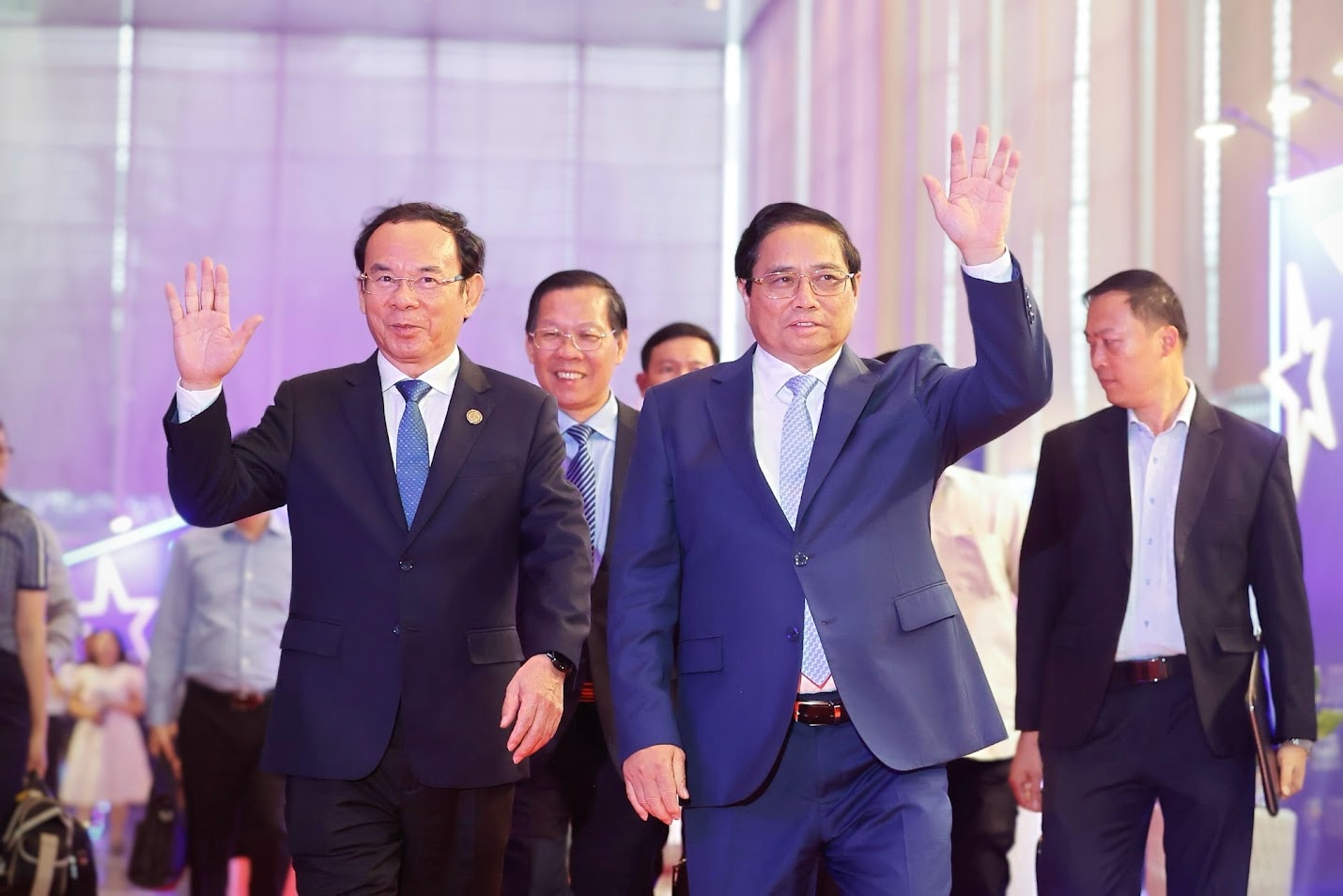
Building policies to promote industrial transformation in Ho Chi Minh City and localities nationwide
Speaking at the opening of the dialogue session, Vice Chairman of the Ho Chi Minh City People's Committee Vo Van Hoan expressed: Ho Chi Minh City Economic Forum 2024 is very pleased to receive the attention of leaders of central ministries and branches; leaders of localities, experts, enterprises, large domestic and international investors, especially the participation of Prime Minister Pham Minh Chinh at the Policy Dialogue Session.
This demonstrates the interest of Government leaders, the business community, and investors as well as the importance and practical value of the 5th Ho Chi Minh City Economic Forum - 2024 with the theme "Industrial transformation, a new driving force for sustainable development of Ho Chi Minh City."
The breakthrough technological development in the 4th Industrial Revolution has been strongly affecting all aspects of social life, from economics, politics to society and environment; fundamentally changing, strongly promoting the transformation of the traditional economy into a knowledge-based economy based on innovation; has created many opportunities for countries, especially Southeast Asian countries like Vietnam; thanks to digital economic transformation, we can shorten the development gap to break through and move forward.
However, the Fourth Industrial Revolution also creates many challenges, requiring high determination, large resources, abundant human resources, improved legal policies; deeper international cooperation; local initiative is essential, but the central government's decisions are important in determining the success of the transformation process.
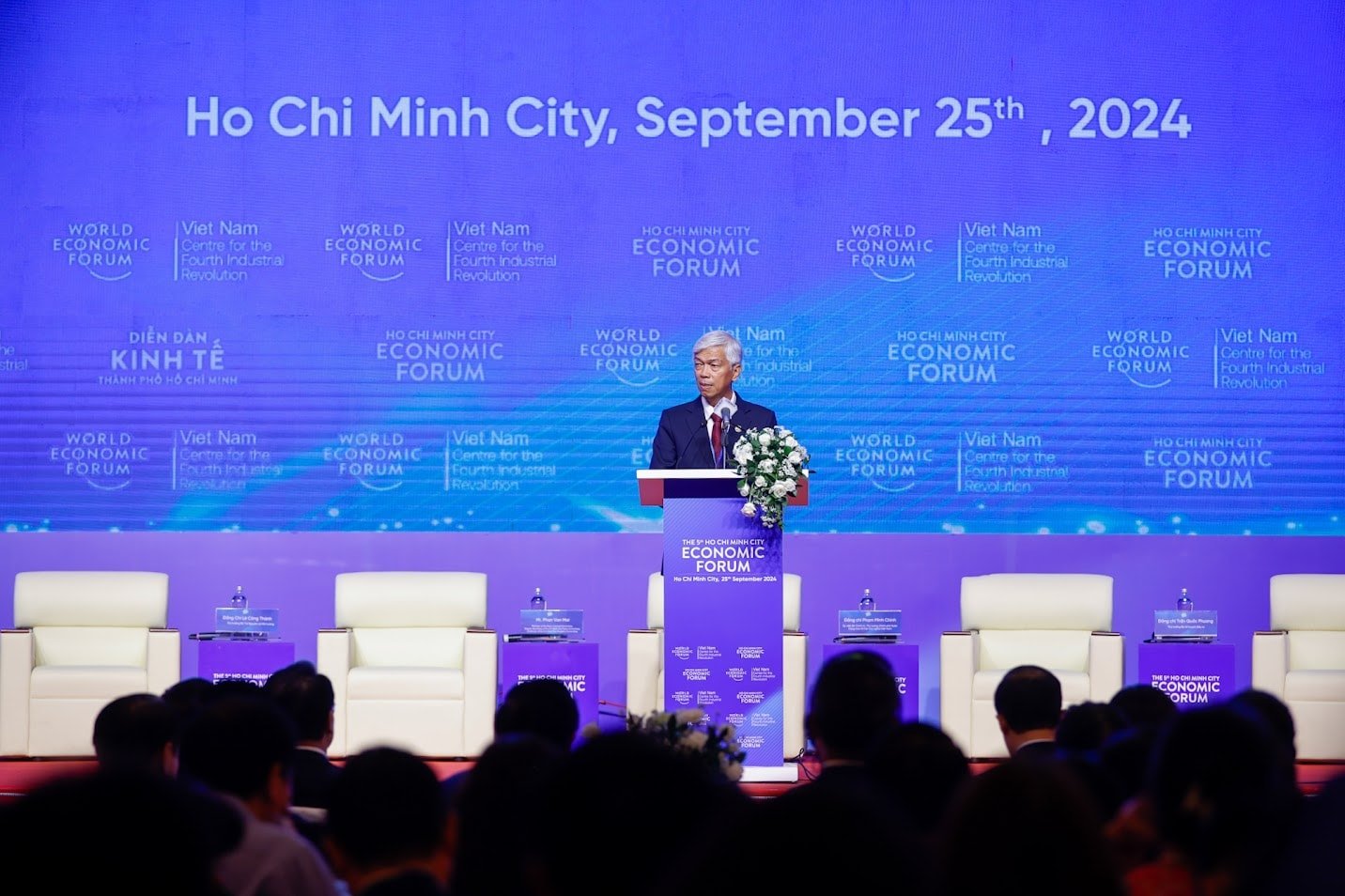
In the past 5 years, the City's economy has continued to develop steadily, playing the role of a multi-faceted center of the region and the country; an economic, financial, commercial, scientific - technological, and innovation center of the region and the country. Every year, the City contributes 20% of GRDP, 25% of the budget revenue and the whole country.
In the economic development of the City, industry has an important position and accounts for a high proportion of contribution.
In the period from 2016 to present, with the economic restructuring of Ho Chi Minh City, the industry has had strong and steady development steps based on 4 key industries: (i) mechanics; (ii) electronics - information technology; (iii) pharmaceutical chemistry - rubber and plastic; and (iv) food processing.
These are industries with high technology content and added value, creating positive spillover effects on other economic sectors.
Besides the achievements, the city's industry is facing challenges, unsustainable development; processing and assembly still account for a high proportion; low added value; technology after more than 30 years of investment and development is now outdated; using a lot of resources; labor intensive; supporting industry develops slowly; the distribution of export processing zones and industrial parks is no longer suitable, some industrial parks are currently located in the core area of the city.
To overcome the above limitations; the transformation of the City's industry is extremely urgent and necessary.
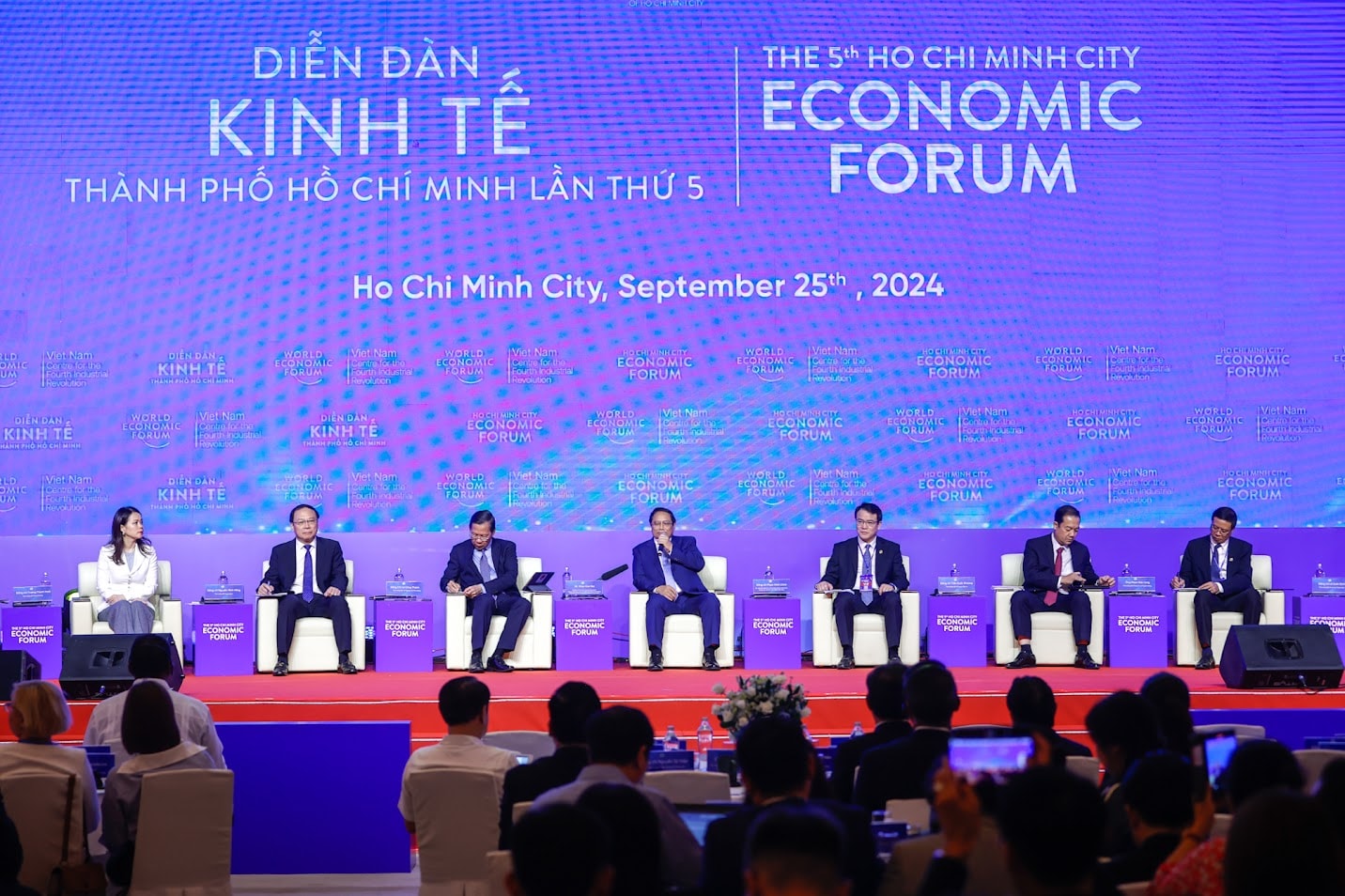
The City's industry must develop in the direction of high-tech application industry; electronic chip, microchip, semiconductor industry; supporting industry; green industry associated with digital transformation; developing a system of services supporting industrial production such as logistics, digital services (including information and communication), financial services, etc.
In particular, it is necessary to form new industries such as new energy industry, pharmaceutical industry, cultural industry, cinema, etc.
Industrial transformation The city is closely linked with provinces/cities in the Southeast region, the Mekong Delta region and the whole country.
The city continues to focus on exploiting its potential and advantages in industrial development as the country's center of science, technology and innovation, effectively exploiting land resources and highly qualified human resources, applying achievements of the fourth industrial revolution to improve productivity, quality and efficiency of industries and industrial products.
To successfully transform the City's industry, in addition to the efforts of businesses and investors, it requires the support of the Government, central ministries and localities.
First of all, it is necessary to build strong and feasible incentive policies of the Central Government and the City according to their authority; continue to reform administrative procedures, improve the investment environment, help businesses and investors effectively access resources according to market mechanisms and seek support and cooperation from international organizations and countries around the world.
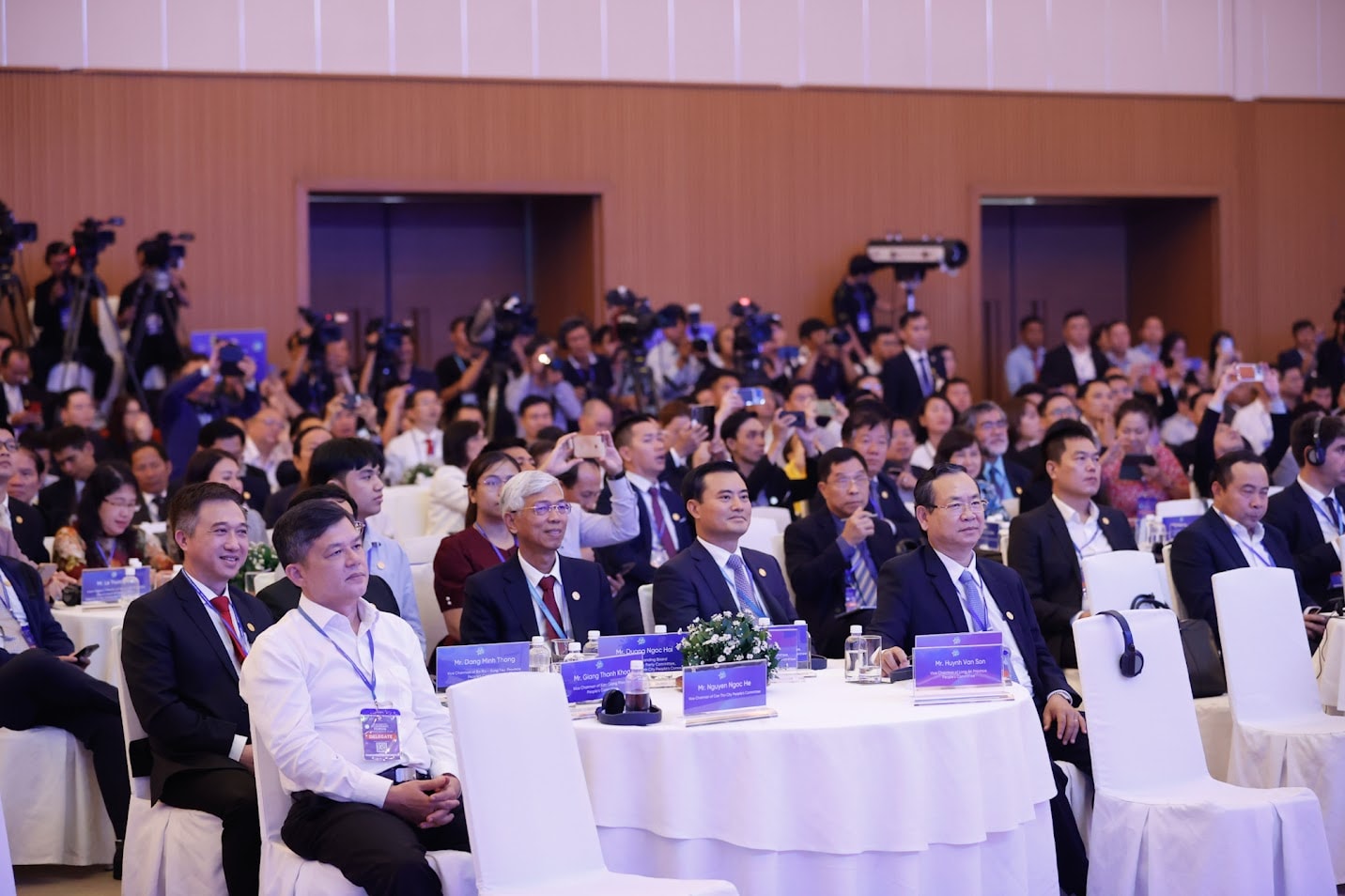
Resolution No. 31-NQ/TW of the Politburo on the direction and tasks of Ho Chi Minh City's development until 2030, with a vision to 2045, and Resolution No. 98/2023/QH15 of the National Assembly on piloting specific mechanisms and policies for Ho Chi Minh City's development have opened up great opportunities for the City in solving socio-economic issues in general and industrial development and transformation in particular. However, in the process of implementation, there will certainly be difficulties and shortcomings.
Therefore, the Policy Dialogue Session at the Ho Chi Minh City Economic Forum 2024 today is an opportunity for businesses to reflect their recommendations and policies so that the Government and the City authorities can listen and seek solutions to build policies to promote the industrial transformation process in Ho Chi Minh City and localities nationwide.
Ho Chi Minh City always realizes that the success of businesses and investors in the process of industrial transformation in general and production and business in particular is the success of the City, contributing to further motivating the City to develop strongly in the spirit of "Ho Chi Minh City for the whole country, the whole country for Ho Chi Minh City", for the common prosperity of the country.
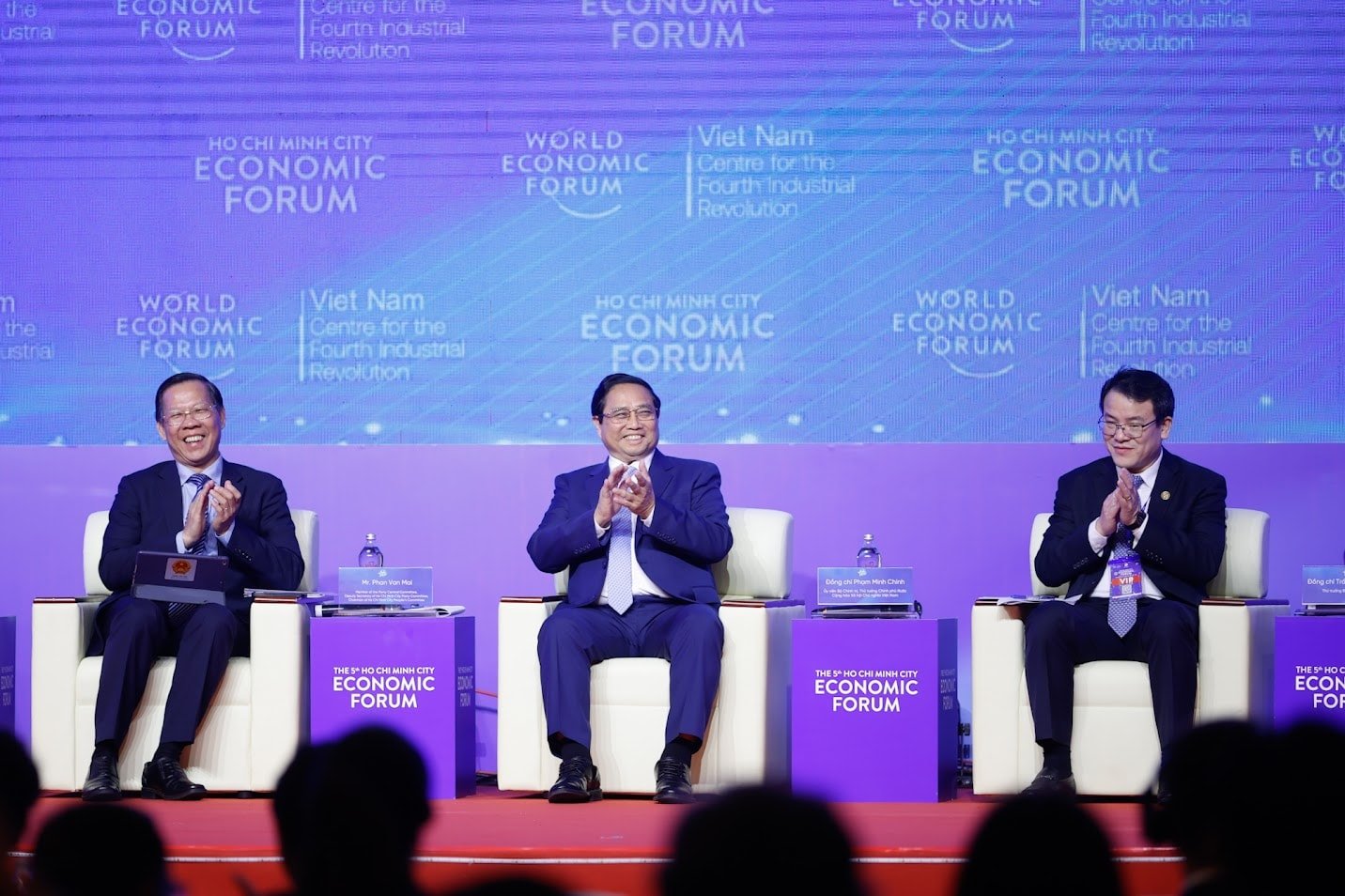
Exchange and share experiences to cooperate, work together, enjoy together, and win together.
Program coordinator, Dr. Tran Du Lich expressed that "asking questions to the Prime Minister is the most difficult" and hoped that the Prime Minister would share a few words with the dialogue.
Speaking at the opening of the dialogue session, Prime Minister Pham Minh Chinh first "corrected" the opinion of Dr. Tran Du Lich - the program's host, that asking questions to the Prime Minister is not the "most difficult" but the "easiest".
The Prime Minister expressed his joy and pride in Ho Chi Minh City when the Forum was held for the 5th time, with an increasingly larger scale, more diverse audiences, deeper issues, and receiving the attention of international friends and partners.
This time, the Forum's theme on industrial transformation is a very broad topic and also represents the distinct potential, outstanding opportunities, and competitive advantages of Ho Chi Minh City; it is a topical international topic. Therefore, the Forum is very meaningful to Ho Chi Minh City, to Vietnam, and to international friends and partners. This is an opportunity to exchange experiences, share, and learn from each other; to cooperate, to share, to listen, to share visions and actions, to work together, to enjoy together, to win together, to have joy, happiness, and pride together.
"I am sure that after the Forum, everyone will leave with an additional "gift" of knowledge that the Forum brings, in addition to the warm and cozy feelings of Ho Chi Minh City as the organizer. From morning until now, I have also received a lot from the Forum," said the Prime Minister.
CONTENT OF DIALOGUE
At the Dialogue Session, the moderator will ask questions "for the Prime Minister", on that basis, Prime Minister Pham Minh Chinh will assign ministry leaders to answer and supplement.
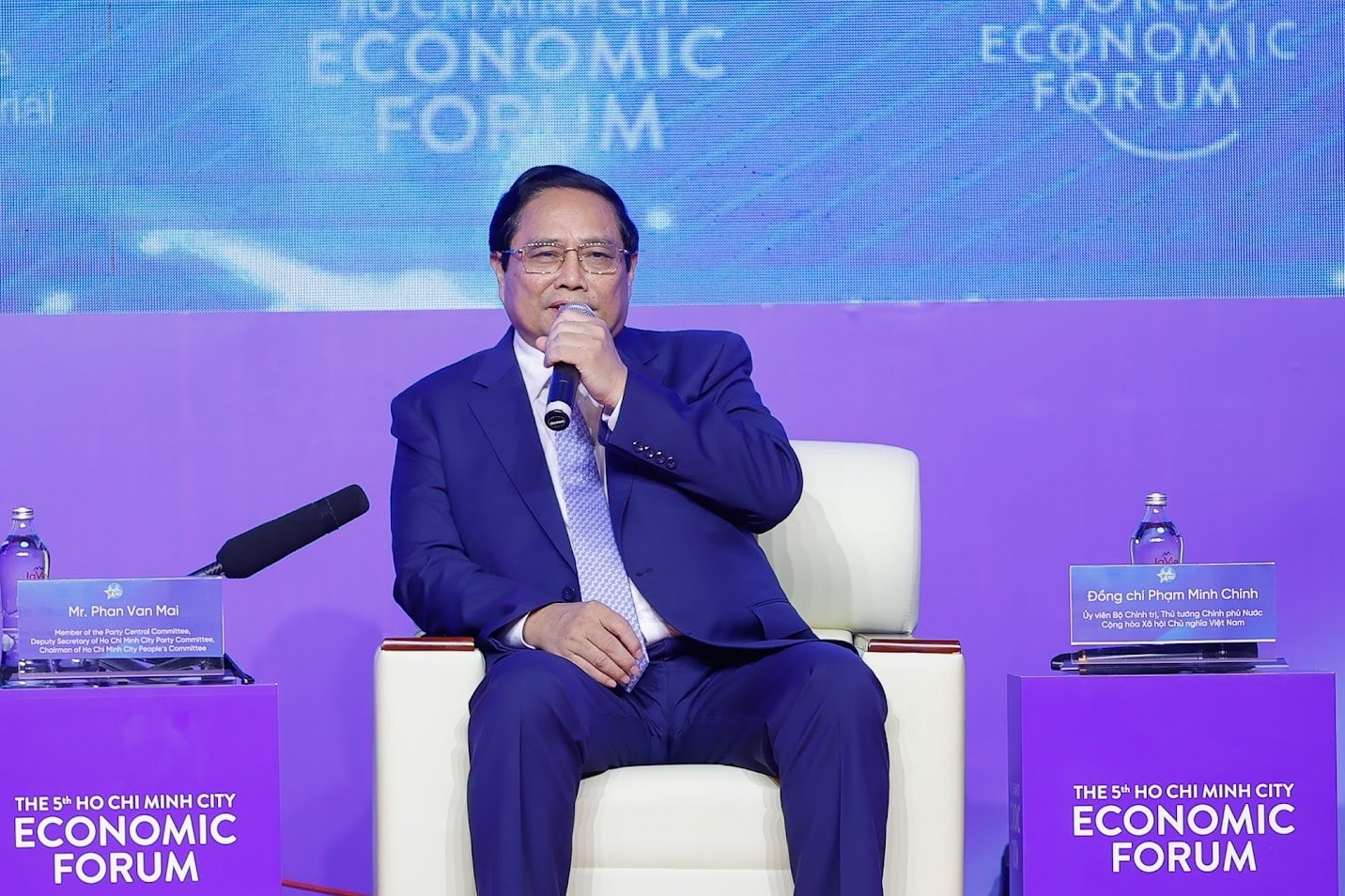
Early establishment of investment support fund to support enterprises in the fields of innovation, digital transformation, green transformation
Dr. Tran Du Lich: What priority policies has the Government been implementing to support businesses in accelerating the process of economic transformation, first of all in the industrial sector, to support both large and small businesses to be able to transform?
Deputy Minister Tran Quoc Phuong, Ministry of Planning and Investment: We have had different levels of comprehensive policies on economic transformation in general in a broad sense and industrial transformation in particular, with special emphasis on innovation and creativity.
Currently, the major policies of the Party and State have been specified in the 10-year strategy approved by the 13th Party Congress; clearly outlining the guidelines, policies and decisions related to economic restructuring associated with specific goals of improving the quality and efficiency of the economy, improving labor productivity and enhancing the competitiveness of the economy.
In terms of specific implementation, there are also documents that businesses can refer to, such as the 5-year and annual plans that outline specific steps in restructuring the economy.
Specifically, there is an emphasis on 3 key areas in economic transformation including: Restructuring the State budget; Restructuring State-owned enterprises; Restructuring public investment. These are 3 key areas to promote the impact on economic transformation. In addition, there are specific policies for each sector and field in industry, agriculture, services, trade, etc.
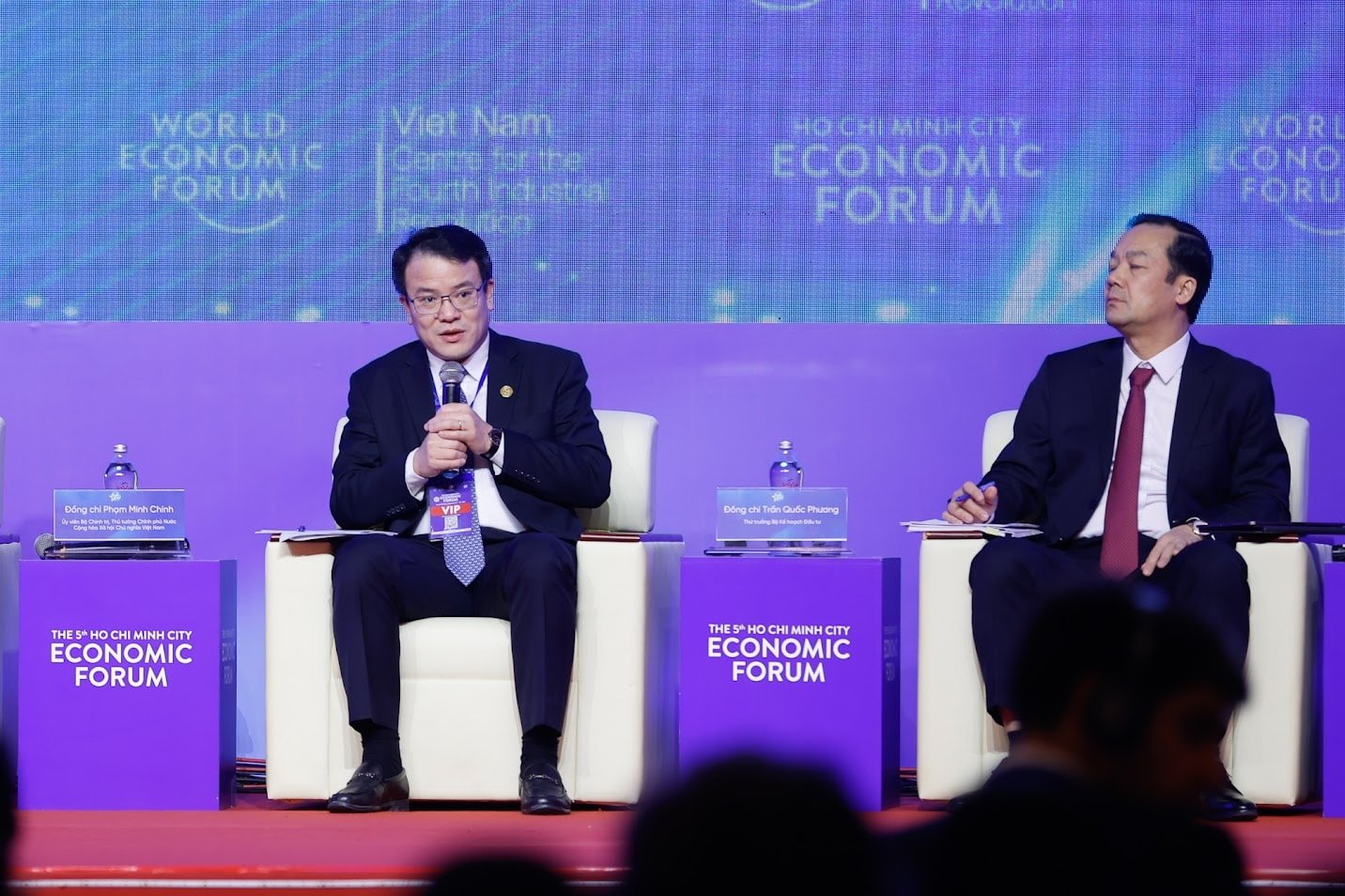
Going deeper into promoting transformation with the industry, it emphasizes two transformation processes (dual transformation), namely digital transformation and green transformation, which go hand in hand. Currently, to successfully implement, promoting innovation is an urgent requirement.
Up to now, among the issued policies, I would like to update that the Prime Minister has recently issued two important decisions: Approving the Strategic Project for the Development of the Semiconductor Industry in Vietnam and the Project for Training High-Quality Human Resources for the Semiconductor Industry and Chip Manufacturing.
These are two key decisions for us to enter a new phase of promoting stronger economic transformation in the fields of innovation, digital transformation and green transformation.
Currently, for green transformation, there are also specific regulations of the Ministry of Natural Resources and Environment with criteria, standards, and norms to determine what is a green enterprise, green product, green project... These will determine the application of current mechanisms and policies in legal regulations to support enterprises that are implementing the digital transformation and green transformation process in the economy.
Finally, the Ministry of Planning and Investment will continue to research, advise the Government and review current regulations related to supporting and encouraging businesses to promote green transformation. Those that are no longer appropriate will be adjusted and the Ministry of Planning and Investment will propose new policies.
The Ministry of Planning and Investment will also present a new policy that the Prime Minister has directed to be issued soon, which is to establish an investment support fund to support businesses in the fields of innovation, digital transformation, and green transformation.
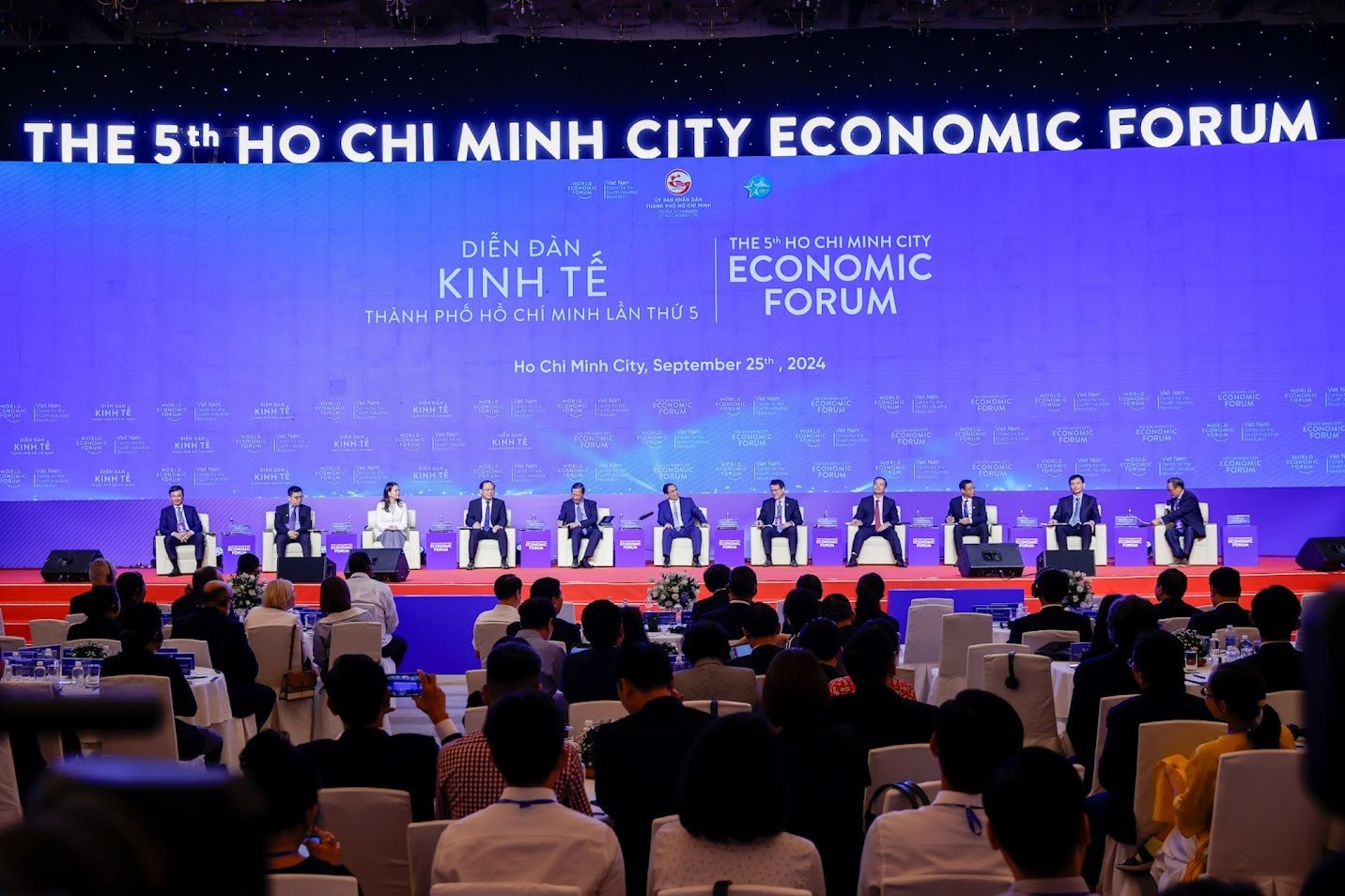
Transformation is an objective requirement, a strategic choice, a top priority.
Prime Minister Pham Minh Chinh: " Vietnam's political system is led by the Party, managed by the State, and owned by the People.
The Communist Party of Vietnam has set out guidelines for industrial development, such as Resolution of the 13th National Congress and Resolution 29 of 2022 of the Central Committee on industrialization and modernization of the country. The Government must institutionalize and concretize these resolutions for effective implementation, with a number of tasks as Deputy Minister Phuong mentioned.
I would like to highlight a few more issues.
Industrialization and modernization must be consistent with Vietnam's conditions and the world trend. The government must grasp the international, regional and domestic situation related to industrialization and modernization. We must understand ourselves, as I heard a Korean guest say, industrialization and modernization must be based on the different potentials, outstanding opportunities and competitive advantages of each country.
Firstly, we must build and perfect institutions. Recently, the Government has reported to the National Assembly to amend many laws such as the Law on Electronic Transactions, the Land Law, the Housing Law, the Real Estate Business Law... and is developing many other laws such as the Data Law. In the upcoming 8th session of the National Assembly, the number of laws passed and discussed is the highest ever. The Government also issued decrees and normative decisions.
Along with that, build mechanisms and policies to mobilize resources; promote infrastructure development, especially digital infrastructure, transport infrastructure, climate change response infrastructure, green development and social, health, education and cultural infrastructure.
Fourthly, it is necessary to form a management system suitable for transformation. Fifthly, it is necessary to have a roadmap, plan, and steps to train human resources. In addition, it is necessary to mobilize the help and sharing of experiences, resources, etc. from friends and international partners, because transformation is an objective requirement, a strategic choice, a top priority, especially in the direction of digital transformation and green transformation.
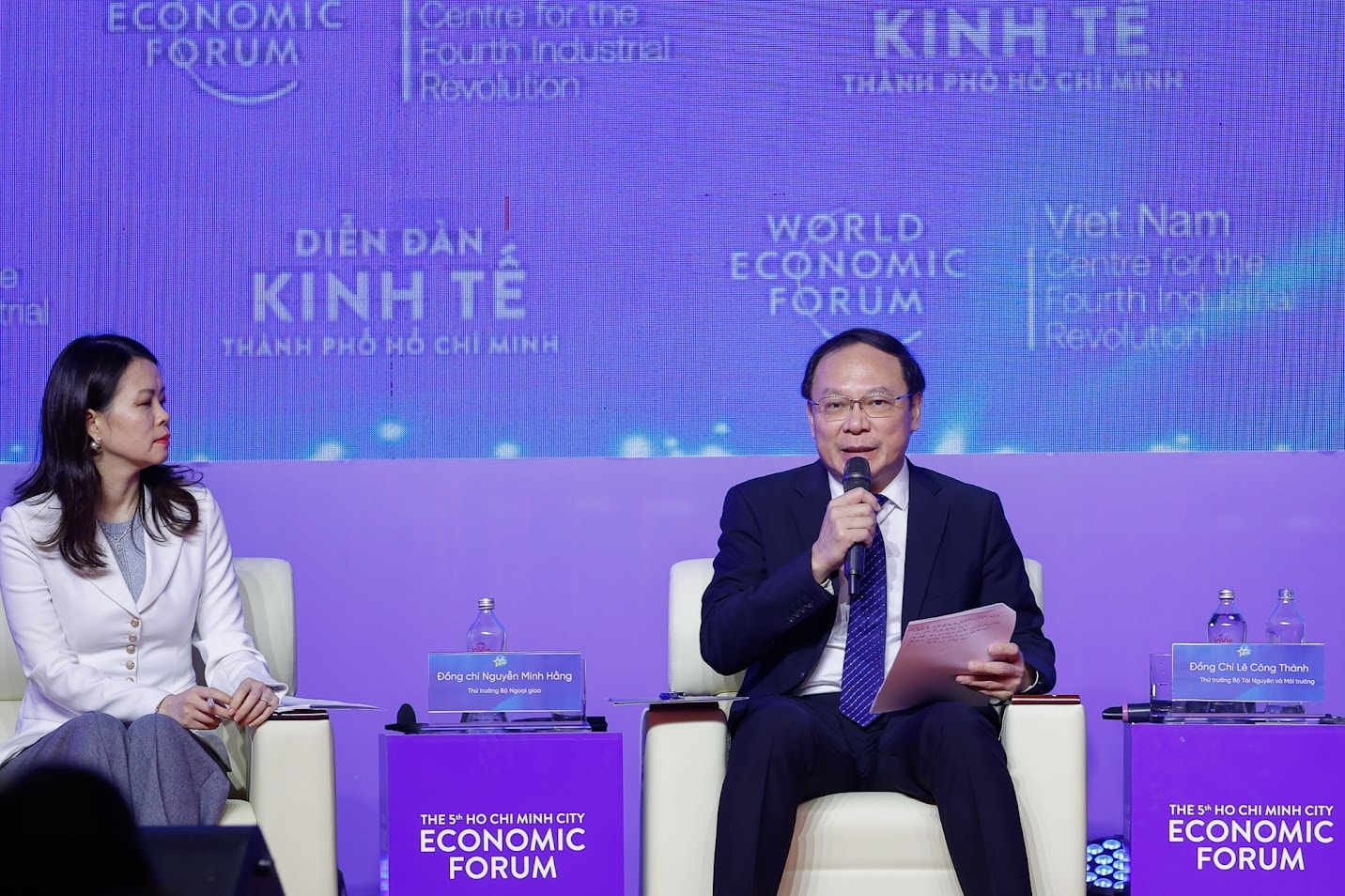
Support for businesses to promote circular economy adoption
Dr. Tran Du Lich: We talk a lot about the current trend of green transformation, especially the circular economy. I understand that the Government has developed a national action plan to implement the circular economy until 2035. At this Forum, I hope the Prime Minister or the Ministry in charge will clarify this action plan to create expectations for businesses, especially those who are moving towards the circular economy?
Deputy Minister of Natural Resources and Environment Le Cong Thanh: Developing the digital economy, digital transformation, green transformation and circular economy have become trends of the times and of the whole world. Vietnam is also developing its economy in line with the trends of the times.
Currently, the Government has assigned the Ministry of Natural Resources and Environment to develop a National Action Plan on Circular Economy. This Draft Plan sets out 5 viewpoints, goals, 5 groups of tasks, and solutions with specific programs and tasks for each sector.
In particular, in the solution task groups, there is a support group for businesses to promote the application of circular economy in production activities.
Specifically, support for ecological design to achieve the criteria of a circular economy; secondly, support for the application and development of circular economic models in production and business; thirdly, support for promoting innovation in applying digital technology, environmentally friendly technology, especially the best available techniques to implement a circular economy. And there is also support for the formation and development of markets for goods and services produced in the circular production chain.
In addition to the above groups of solutions, there is also a group of solutions to strengthen waste management. As we know, the most important point of the circular economy is that waste from one industry will become input materials for another industry. Therefore, support for piloting and expanding the development of regional and local waste management models will also be included in this plan so that we can create support in terms of capital and land for businesses producing environmentally friendly products.
Regarding policies on green credit and green bonds, the State Bank of Vietnam currently has very specific support policies for green credit. The Ministry of Natural Resources and Environment has also developed and submitted to the Prime Minister for approval a set of criteria for identifying green projects so that projects can access green credit capital not only domestically. Develop a green public procurement policy to support the development of the green economy and circular economy.
Next, learning from the experiences of countries around the world, Vietnam will also have to continue to amend environmental protection laws to limit scrap imports and encourage the collection and use of domestic scrap as raw materials for production.
This policy has been applied by many countries, especially those that have gone ahead of us in developing a circular economy in the region.
The second thing is that we will also study the experiences of other countries so that our laws can include regulations on the percentage of recycled materials in each manufactured product. These are also the experiences of leading countries in the region that have been applied.
In the coming time, the Department of Natural Resources and Environment will continue to research and propose to the Government to supplement and amend the legal system to protect the environment, creating conditions to further encourage the development of digital transformation, green transformation and circular economy.
Everyone participates in implementing circular economy
Prime Minister Pham Minh Chinh: The world has been implementing circular economy for a long time and Vietnam has also implemented it, but in the context of resource depletion, environmental pollution, and population growth, this issue has just received adequate attention, with the goal of making circular economy a trend and movement.
The Communist Party of Vietnam is determined not to sacrifice the environment to pursue economic growth alone. One of the solutions to protect the environment is to develop a circular economy, which both helps reduce resource consumption and makes use of raw materials such as using waste to produce electricity.
The Party's policy is very clear, the law is being gradually improved. Vietnam in general and the Government in particular are focusing on two contents: Raising awareness and building mechanisms and policies to mobilize resources from the people, all people participate in implementing the circular economy. This is an important and decisive factor.
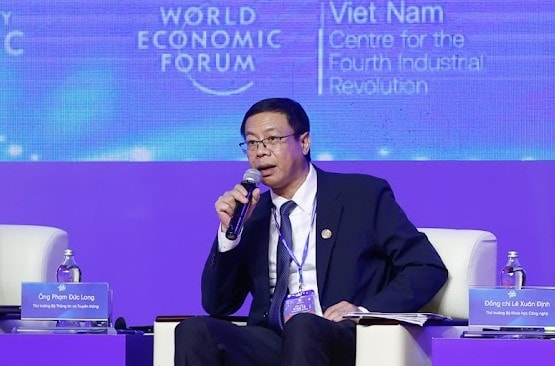
Socialization of resources for science and technology
We have known for a long time that Vietnam has achieved many achievements in science and technology, innovation, and increased rankings... However, for the 4.0 industrial revolution to truly spread its value and create an explosion, there needs to be more breakthroughs, especially in science and technology. So what policies and breakthrough solutions are needed to make breakthroughs in science and technology in all three areas of IT technology, biotechnology, and new materials?
Deputy Minister Le Xuan Dinh, Ministry of Science and Technology: Currently, the Prime Minister is directing the Ministry of Science and Technology to carry out a very important task to institutionalize the Party and State's policies in the fields of science, technology and innovation.
That is to build a draft Law amending the Law on Science and Technology into the Law on Science, Technology and Innovation to institutionalize all directives in the transformation of industrialization, as well as development based on science, technology and innovation into legal regulations.
In the spirit of the Prime Minister's direction for this Law project, we will probably have a fundamental change in the way of thinking and the subjects of regulation. As comrade Tran Du Lich just mentioned, there will be some changes in the policy mechanism.
If our previous policy was that the Law on Science and Technology mainly used the state budget for public units to do projects and research topics, this Law project will focus on the issue of socializing resources for science and technology.
In order for science and technology activities and innovation to be facilitated and implemented mainly in the non-state sector, that is, in enterprises, in order to create conditions for enterprises to have sufficient capacity to absorb technology, create technology and innovate.
That is the most important legal corridor for businesses to have the right to use their own funds to research, buy knowledge, and buy technological secrets to become the internal capacity of businesses.
Currently, enterprises are allowed to set up a science and technology development fund for the enterprise. However, our current regulations are not strong enough, partly due to the trust for enterprises to use that fund to innovate their own technology.
In the near future, the Prime Minister is directing the Ministry of Science and Technology to amend Decree 95 on financial investment mechanisms for science and technology, which will also remove barriers in this field. For example: The Science and Technology Development Fund in enterprises will be used for digital transformation of enterprises, and there will be regulations in the near future, from now until the end of the year.
In the long term, next year we will submit to the National Assembly a revision of the Law on Science and Technology, and most importantly, in the direction of socialization so that enterprises become the central factor in the process of absorbing technology, mastering technology, creating technology and promoting innovation, spreading throughout our entire industrial transformation system.
Dr. Tran Du Lich: This morning at the forum, an Israeli delegate made a very good statement: The reason why Israel has been able to develop science and technology is because all research, whether private or public, is brought to the market and becomes a commodity. So, could you tell us more about how the Vietnamese technology market is developing today? Without this market, can technology policies develop? What is the Ministry of Science and Technology's plan to promote the technology market?
Deputy Minister Le Xuan Dinh: This is really a bottleneck. For research results to be commercialized and become innovative products, there is a current barrier, which is the Law on Public Asset Management.
And in our view, when a task uses the state budget, the assets created from that task are managed as public assets, as a completed construction project. Without considering that all our investments have crystallized into knowledge and the most important thing is to manage knowledge, disseminate knowledge and apply that knowledge.
Currently, the Prime Minister is directing the Ministry of Finance to coordinate with the Ministry of Science and Technology to amend Decree 70 on the management of assets formed from science and technology tasks using the state budget and we are also trying to resolve this issue.
However, having only one Decree is not enough. Looking at the concept of public asset management, if we do not remove it, research agencies and organizations will not use their assets to contribute capital to start-up businesses but will use their own knowledge and technological know-how to develop products to serve society.
Here is another aspect, the next barrier is the Law on Management of Civil Servants and Public Employees, which does not allow our civil servants to participate in leading enterprises or establishing enterprises. Therefore, it prevents the transfer of human resources with research skills and knowledge between the research sector of universities, research institutes and enterprises.
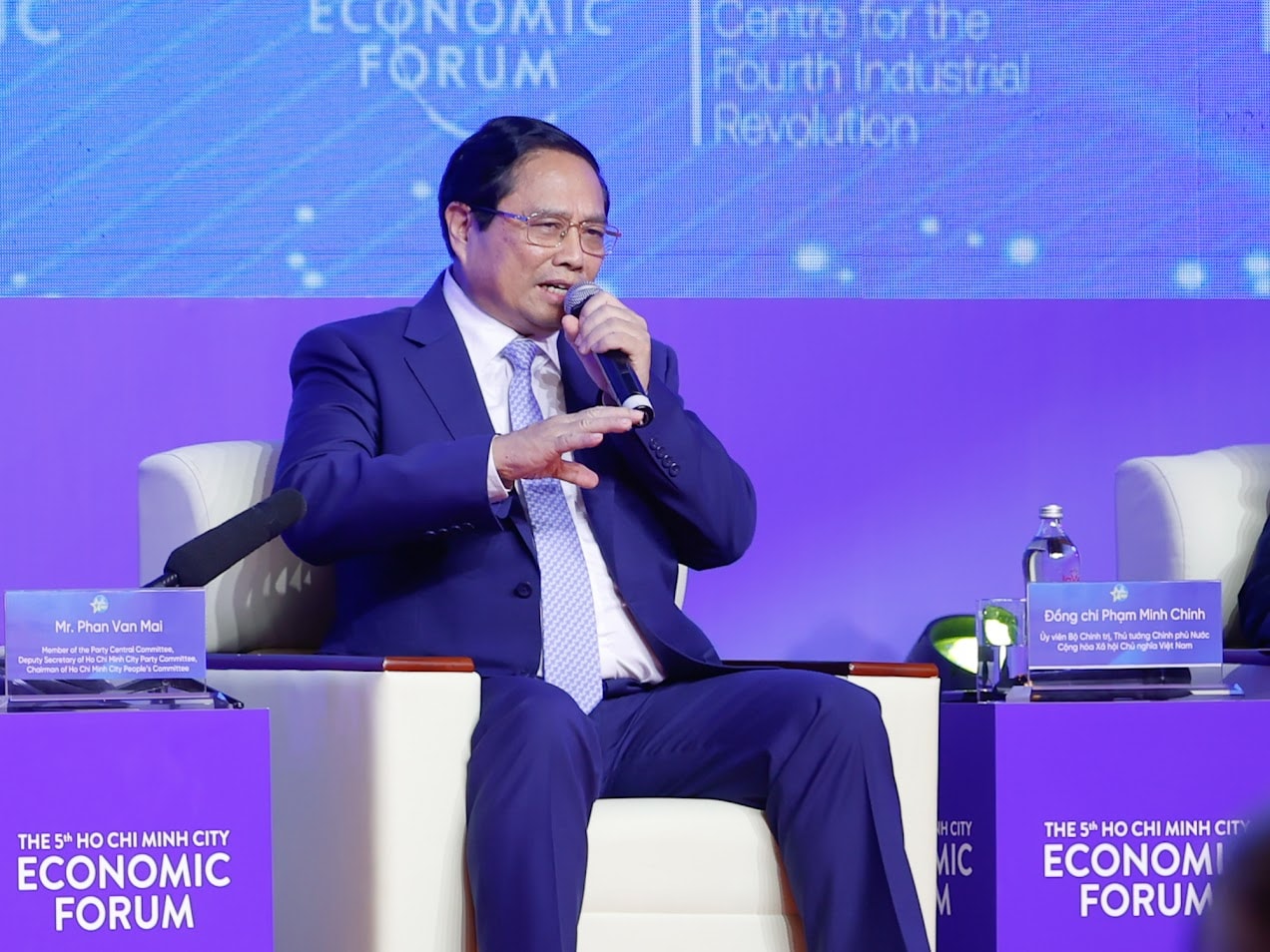
Developing education and training is an important foundation for developing science and technology.
Prime Minister Pham Minh Chinh: To develop science and technology, we must first develop education and training, which is a very important foundation. The Communist Party of Vietnam identifies education and training, science and technology as the top national policy; has issued resolutions on fundamental and comprehensive innovation of education as the foundation for developing science and technology, such as shifting from equipping simple knowledge to comprehensive knowledge.
The Government has determined that it is necessary to concretize the Party's policies and guidelines through institutions. Institutions play a very important role. "Institutions, institutions and institutions". Therefore, perfecting institutions to contribute to promoting science and technology, innovation is one of the breakthroughs.
Second, it is necessary to focus on training human resources to implement the Party's guidelines and policies and the State's policies and laws on the above contents.
Third, in terms of resources, it is necessary to amend regulations to develop the science and technology market. Science and technology products are a type of commodity that can be traded on the market in a public, transparent, and fair manner, in compliance with market rules. State resources are used as seed capital, leading and activating all social resources.
Along with that, remove obstacles in institutions, mechanisms, and policies to streamline the science and technology management apparatus, operate effectively and efficiently; have mechanisms and policies to encourage dynamism and creativity for the common task, for the common interests of the nation and people, including solutions regarding cadres.
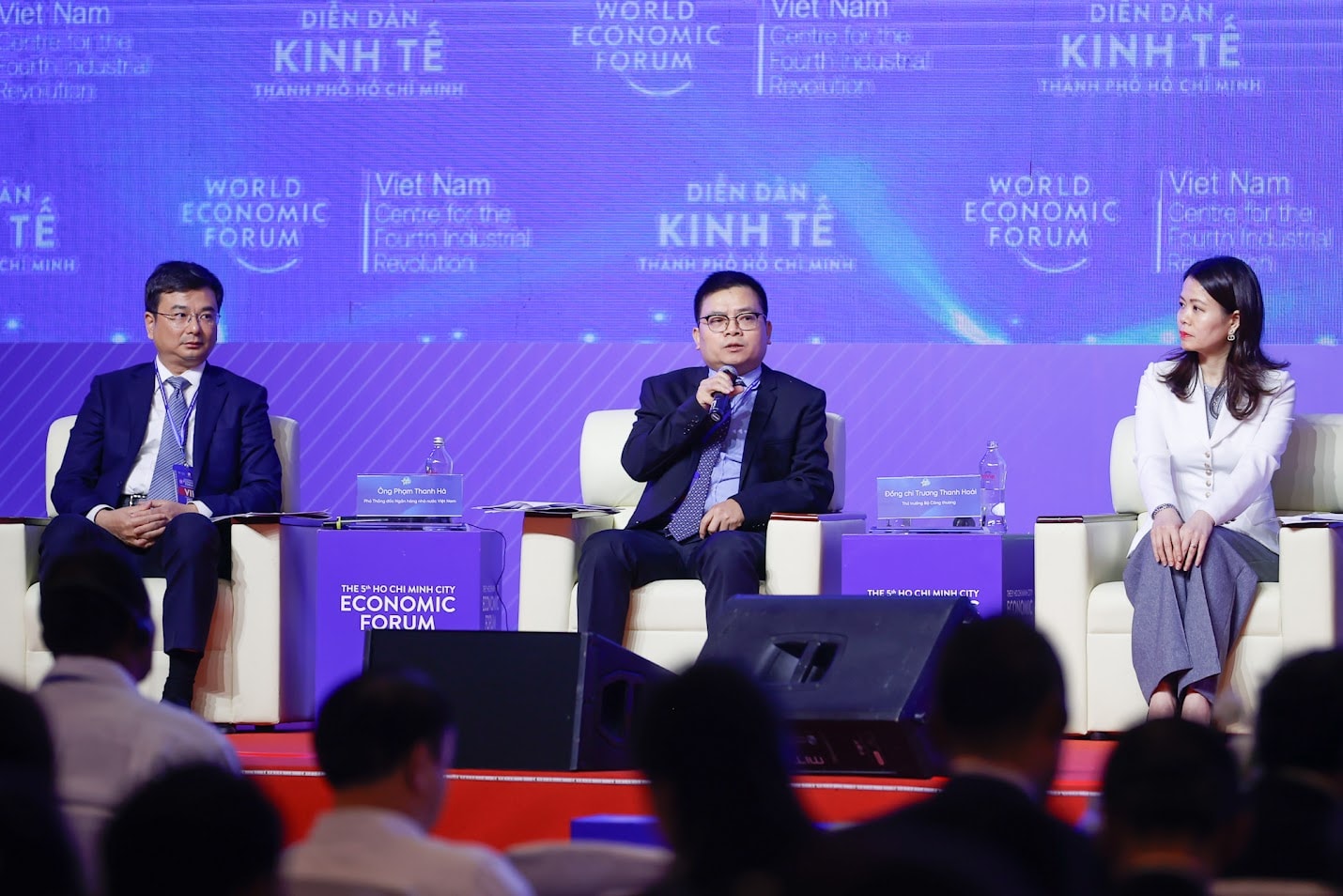
Comprehensive amendment of the Electricity Law
Dr. Tran Du Lich: The next question is related to a rather big issue, which is that public opinion in the country and the world supports us in participating in the COP26 net zero 2050 commitment. The Government has a policy of action and a specific plan. However, through the forum, I would like to ask the Prime Minister to clarify: How do we implement this goal at the central and local levels regarding the implementation of the net zero roadmap and local selection. What policies do we have to promote local participation in the Government program?
Mr. Truong Thanh Hoai, Deputy Minister of Industry and Trade: Regarding the energy transition issue, the Government and the Prime Minister have given very strong direction.
Recently, the Prime Minister approved the Power Plan VIII in Decision No. 500/QD-TTg dated May 15, 2023. In the spirit of coal-fired thermal power, no new projects will be invested in, and projects in operation must be renovated to increase efficiency.
At the same time, emissions must be minimized. In addition, the Power Plan VIII also identifies alternative power sources with lower emissions such as liquefied natural gas, solar power sources, renewable energy, onshore and offshore wind power sources.
Based on the direction of the Prime Minister, we are currently also comprehensively amending the Electricity Law.
In the spirit of ensuring a stable and long-term power supply, attracting investment and production activities of domestic and foreign enterprises in Vietnam as well as people's lives, the Electricity Law is currently being developed in a direction to attract all social resources in developing power sources.
The first is to provide enough energy. The second is to contribute to the green energy transition and reduce emissions.
In the recent past, based on the Prime Minister's direction, we have issued mechanisms such as the direct electricity purchase and sale mechanism so that people and businesses with the conditions and localities with the conditions to invest can directly sell self-produced electricity sources to businesses in need.
Besides, a very important policy, in a very short time, the Prime Minister will also sign and issue a policy to develop solar power, rooftop and self-production and self-consumption will also be encouraged to develop.
In this mechanism, when people and businesses invest in solar and rooftop power systems, if there is surplus electricity, it will be sold to the national grid. And most importantly, in the initial stage, the level and rate of selling to the national grid will be controlled to a certain extent to ensure the stability and stable operation of the national power system.
Furthermore, in this revised Electricity Law, we also emphasize that, in addition to the competitive development market that Vietnam has currently implemented, we will continue to implement the level of the competitive wholesale market. That is, manufacturers and electricity producers with self-produced electricity sources according to regulations are entitled to sell to the common market, the competitive electricity market. And of course, on the basis of ensuring the stability of the national electricity system. In addition, we also promote attracting investment in the field of wind power and renewable energy.
In the upcoming revised Electricity Law, we will have preferential and supportive policies, especially offshore wind power policies with breakthrough policies according to Resolution 55 to ensure national energy security and ensure the net zero 2050 target.
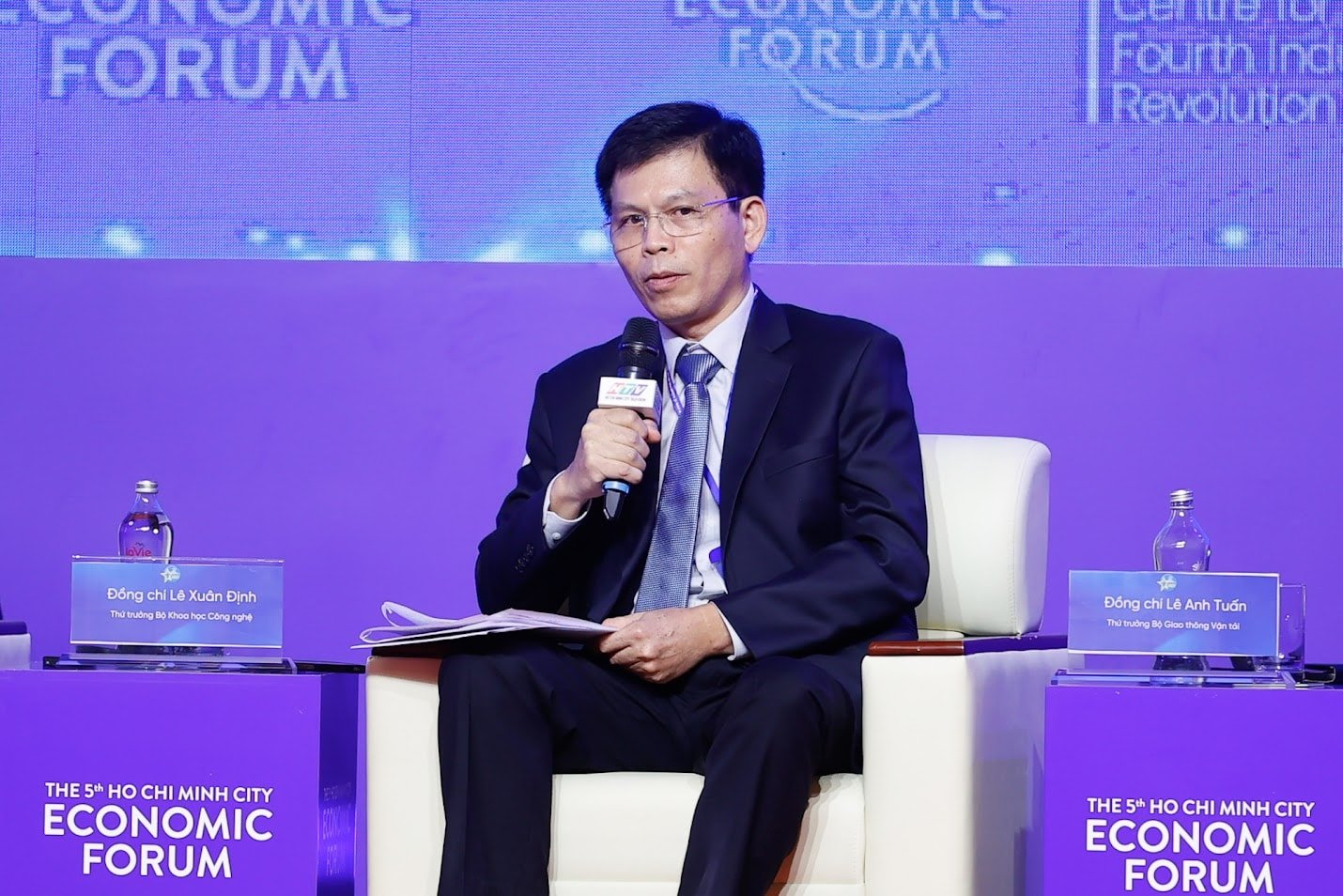
Mr. Le Anh Tuan, Deputy Minister of Transport: The transportation industry with methane and CO2 emissions is only third after the agricultural sector. However, to implement the Party's policy, especially the Prime Minister's commitment at COP26, the Ministry of Transport also developed a program and submitted to the Prime Minister.
The Prime Minister issued Decision 876/QD-TTg in July 2022, which offered a roadmap to convert vehicles and develop infrastructure how to reduce carbon CO2 emissions to 2050 to Net Zero.
In that program, it is determined that urban traffic CO2 and carbon emissions have a huge impact on the urban environment, so the Ministry of Transport has developed a roadmap to propose that cities, especially large cities like Ho Chi Minh City and Hanoi, have a specific policy depending on the financial capacity of the cities.
We want the city to have policies to encourage people to use public transport and convert vehicles such as buses that we use energy such as oil, diesel, gasoline to green energy is electricity and other energy hydrogen ...
We also urgently implement projects as the Prime Minister has drastically directed the breakthrough of transport infrastructure, especially transport infrastructure, including urban transportation as urban railway. Currently, two projects are currently implementing the Ministry of Transport to set up two projects to develop urban transportation in Ho Chi Minh City, Hanoi City.
Besides, there are many other policies such as developing high-speed railways which is also a solution to reduce CO2 emissions, developing a strategic highway infrastructure framework is also one of those solutions.
Thirdly, developing equipment, we have also built a roadmap to 2030, with policies to encourage vehicles to use electricity and hydrogen energy. By 2040, step by step restricting the production of car equipment and road vehicles using other gasoline energy and fuel energy, focusing only on green and clean energy.
Prime Minister Pham Minh Chinh: Currently, the Central Government is working on policies, guidelines, mechanisms, laws, programs and plans; Must lead the story of human resource training, management, capital mobilization ... for this issue.
And the locality must proactively implement according to its competence to comply with the guidelines, guidelines and policies of the Central Government, apply in the best way to suit specific conditions and circumstances; mobilize the participation of people and businesses.
Regarding specific tasks, the first task is to perform energy conversion, switching from high carbon emissions such as coal thermal power to clean energy, green energy, and a roadmap to terminate the operation of coal thermal power plants. Clean energy includes atomic power, wind power, solar power, hydrogen, biomass, liquefied gas ...
Vietnam can develop clean energy because it is tropical monsoon water, no shortage of sun and wind, no one can take our away. Along with that, enhance afforestation to absorb carbon, develop biomass energy; At the same time research and develop atomic energy.
Vietnam has issued and implemented the VIII Electrical Plan in the above direction; Recently, the mechanism of electricity trading directly and is about to be issued next week on the Decree on encouraging the roof of the roof of the roof.
Along with that, Vietnam develops green transportation, electric vehicles, low-emission transportation; promotes the construction of large projects on high-speed railways, urban railways, etc.
These are things we are doing very actively and need the support of people and businesses, the support of international partners, such as G7 countries supporting Vietnam through the Just Energy Transition Partnership (JETP) between Vietnam and the International Partnership Group (IPG).
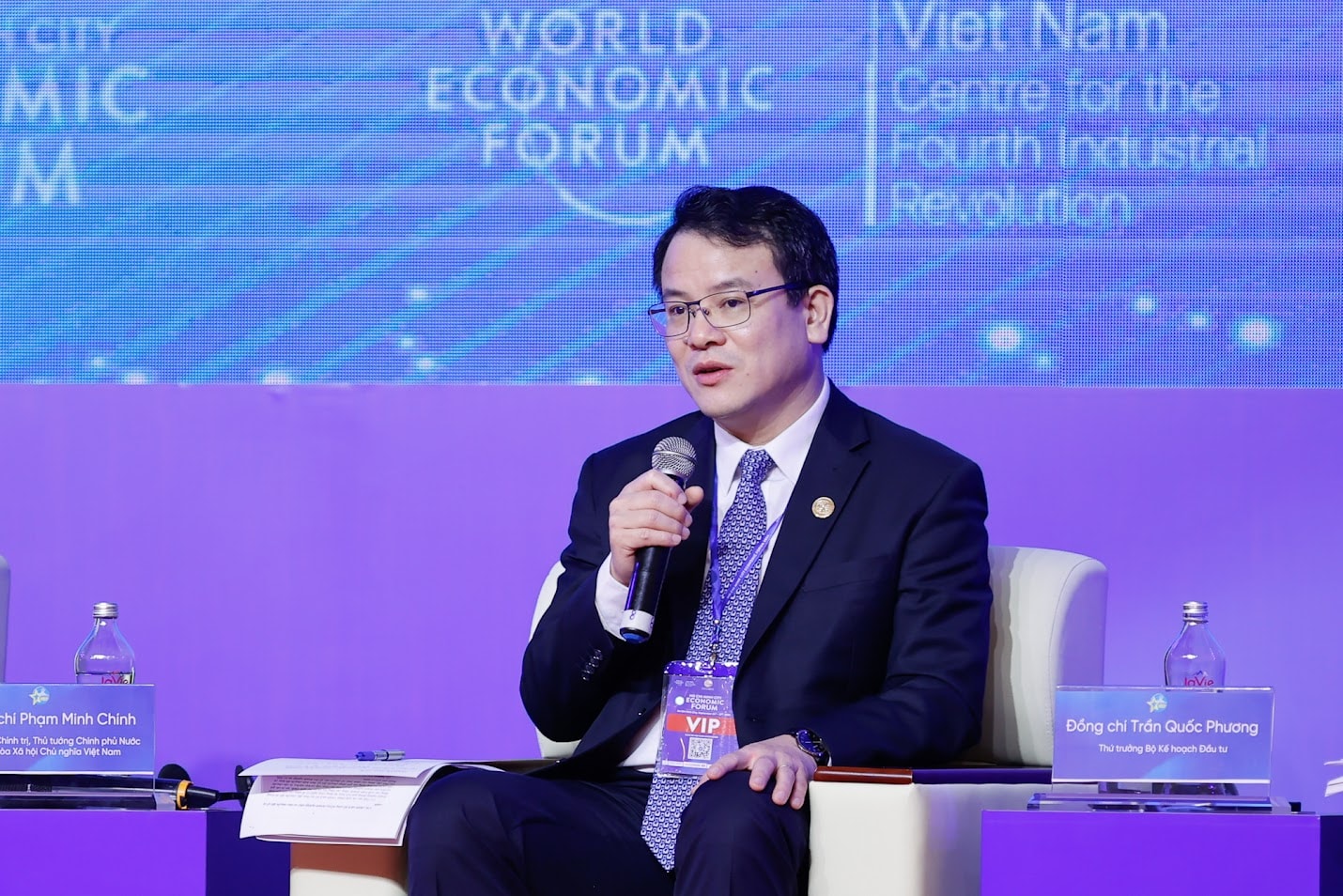
What specific policies do we have to attract new generation FDI investment?
Many competitive countries to attract investment in "head" businesses in chips, semiconductors ... In this field, what specific policies do we have, please clarify the Prime Minister, especially the new generation FDI investment field?
Deputy Minister of Planning and Investment Tran Quoc Phuong: Regarding attracting foreign direct investment, the general direction in Resolution 50 of the Politburo in 2019 is to attract large-scale projects, environmentally friendly projects, and high-tech projects to improve the quality of foreign investment in Vietnam.
To implement those directions of the Central Party, the Government and the Prime Minister have directed the development of action programs, specific mechanisms and policies. Currently, to attract foreign investment to Vietnam, it is necessary to ensure basic conditions for investors to look at and come to Vietnam.
The first is the orientation of development and policy orientation to be clear and transparent, investors will see. Here is related to the issue of orientation in Vietnam's development strategy as well as in specific plans for industry development and fields for investors to pay attention.
Secondly, related to the basic conditions of foreign investment, including land conditions, human resources conditions, energy conditions ...
In recent years, Vietnam has changed a lot for the adjustment, amendment, supplementation and completion of the provisions related to these three factors to attract investors, to receive changes in investment capital flows in the new context, including amendments to the Land Law to increase the opportunity to access land for investors.
For energy sources, we have approved the planning of VIII electricity and the Prime Minister's direction, very fierce in implementing a 300 kV 300 kV line with the highest goal of not being deficient in electricity and people's life.
For human resource training, this is also a major orientation and breakthrough of our Party and State. In the development of human resources, for attracting and attracting new generation investment projects in the field of information technology, semiconductors, or new fields, there are additional policies as well as additional projects as I mentioned initially about the Prime Minister's decision approving the training project of 100,000 engineers and high -tech workers in the field of semiconductor, who to serve the direction of new attraction.
Besides, as Mr. Tran Du Lich stated, related to the current context is that investors are concerned about the minimum tax on global. Of course, for large investors and transnational corporations that meet the criteria to pay at least global taxes, this is a great concern for them to implement projects in countries like our country.
Currently, in order to maintain an attractive business investment environment, the Prime Minister is also directing the Ministry of Planning and Investment to urgently complete the Decree on the investment support fund and the investment support fund's target is to attract investors in the fields of technology, new industries such as semiconductor chips, green hydrogen... to support businesses that are feasible in expanding investment in Vietnam between current projects that the business is operating and expanding and investing in new projects that the business has implemented in Vietnam.
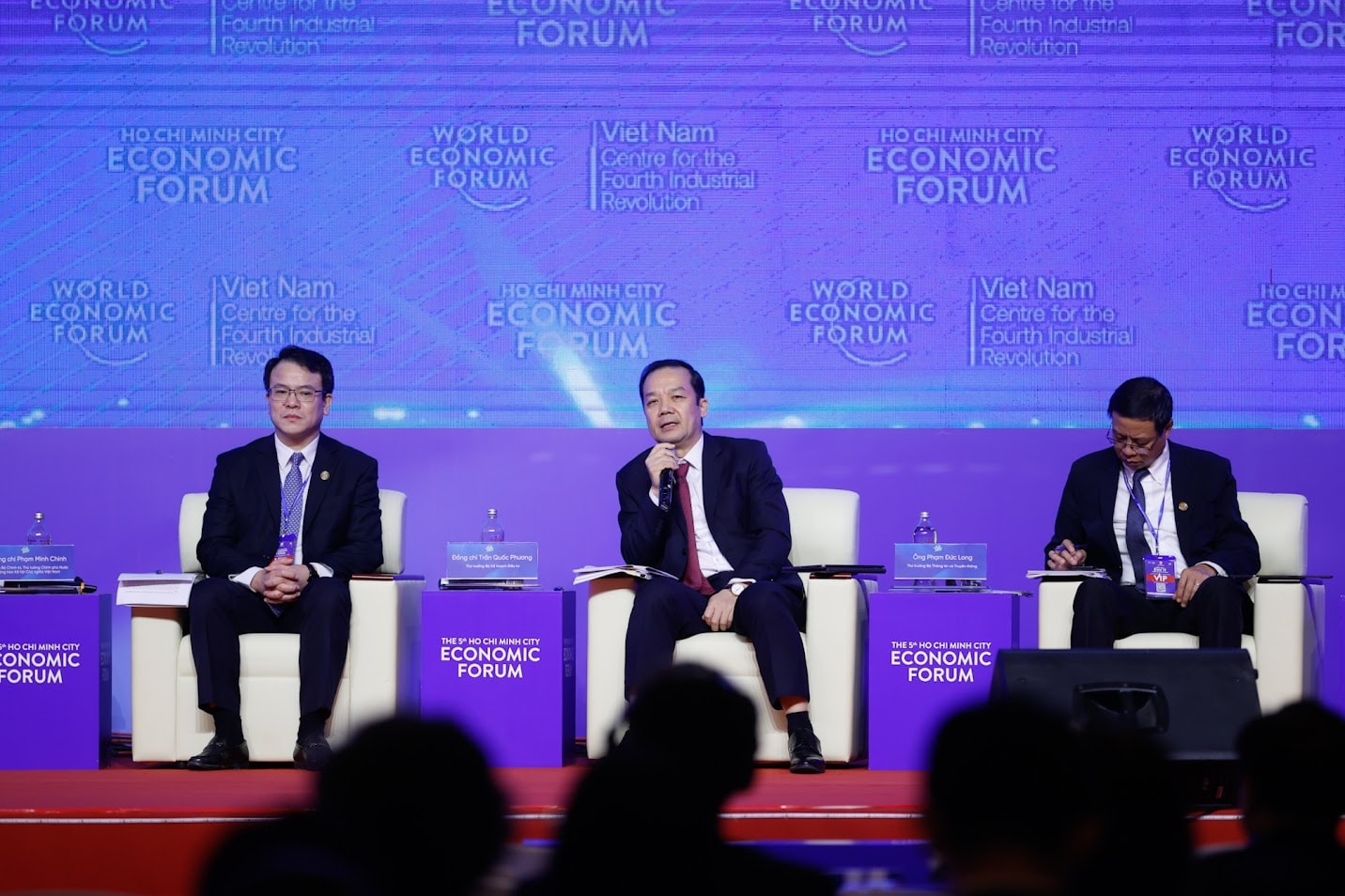
Foreign investors are not limited in capital contribution ratio when participating in the construction of data centers
Deputy Minister of Information and Communications Pham Duc Long: Regarding the field of information and communication industry, in attracting FDI for high -tech investment projects, recently the Government submitted to the National Assembly for approval of telecommunications law amended.
In this Law, for the first time we include data center and cloud computing services in the Law for regulation and management, but mainly to build policies to promote development and attract investors for large, very large data centers.
We already know, the conversion needs very needed data centers on a huge scale. Vietnamese businesses have also actively built but we still need many large foreign investors to participate.
In this Telecommunication Law, put into two key points, firstly, foreign investors are not limited in capital contribution ratio when investing in building data centers. Second, data centers are not licensed. We follow the principle of post -inspection to ensure the regulations, green standards, technical standards, ensure safety and network security.
On September 20, the Prime Minister signed a strategy of Vietnam's semiconductor industry. In this strategy, there are many preferential policies.
However, these policies will be implemented and implemented by ministries and branches in the process of issuing instructions, including many issues related to customs procedures and tax expenses.
There is a content I want to exchange more, the State, the Government will devote the budget to build national shared laboratories for domestic and foreign businesses to use.
For digital technology development, the laboratory and testing room are needed, to help businesses in the process of testing new technology and new models.
The Ministry of Information and Communications also submitted to the Government to promulgate a strategy of developing digital technology enterprises, meaning that FDI enterprises bring technology to but they also need digital technology businesses to support and support into ecosystems.
This is a strategy and is being implemented. Currently we have achieved 0.5 enterprises/1,000 people, the target of 2030 strives for 1 digital technology/1,000 people.
FDI is an important and breakthrough resource
Prime Minister Pham Minh Chinh: As we mentioned, in the development of the country, the internal resources are basic, strategic, long -term, decisive, external resources are important and breakthrough. FDI brings capital, technology, management, contributing to training human resources and market.
In our current conditions, FDI is very important and breakthrough because of limited internal resources. Since the beginning of the year, the global FDI has decreased but Vietnam still attracts US $ 21 billion in the capital of registered FDI and disbursed US $ 14 billion, the highest ever, so our attraction is effective.
To attract FDI, we must return to the three issues we have raised: First, we must have open institutions, remove obstacles and barriers in investment procedures, reduce procedures, and decentralize and delegate more power to localities.
Secondly, the infrastructure must be convenient and smooth, the current cost of logitstics of Vietnam accounts for about 17-18% of GDP, and must be reduced to the same advanced countries is about 11-12% of GDP. In order to develop infrastructure, this, in addition to creating a new development space, increasing the value of land, it also reduces costs, improves the competitiveness of products and the economy.
Thirdly, interest in meeting high quality human resources for emerging industries such as semiconductor chips, hydrogen, artificial intelligence, cloud computing ....
And Dr. Tran Du Lich mentioned a specific minimum tax on globally, we were previously reducing taxes to attract investment. When OECD applies a minimum of global tax, instead of using tax tools, we must use other tools to support investors such as money support, products and mechanisms and policies. Investors can be assured of this.
We call on investors to feel secure investing in Vietnam because we are building an open mechanism, smooth infrastructure, smart people and governance.
Vietnam is committed to protecting the legitimate and legitimate rights and interests of investors, not criminalizing economic -civil relations. I believe Vietnam is an attractive and future investment destination.
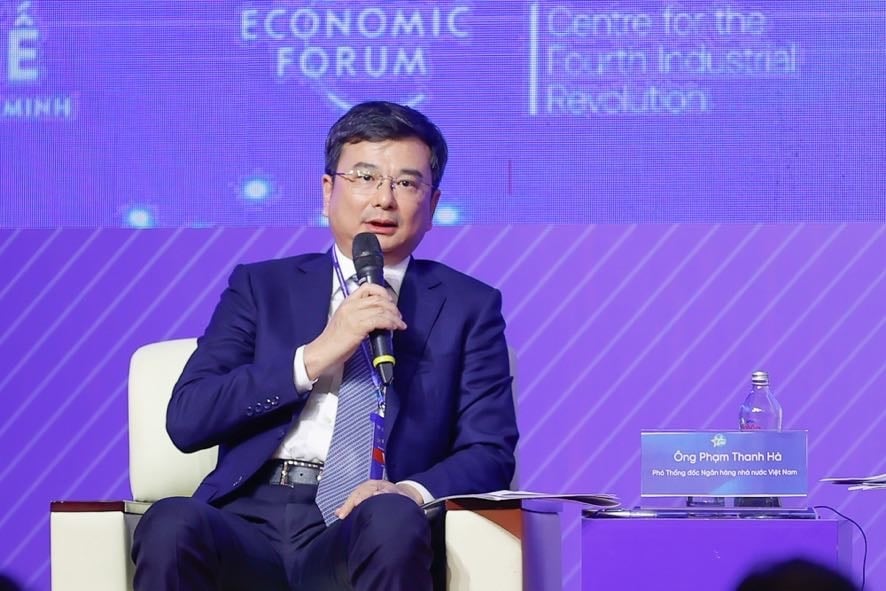
The average green credit growth rate of 22%/year
PhD. Tran Du Lich: In order to create an attractive investment environment for technology investing, innovation in recent Government has also issued a number of credit policies. By the way, the SBV, the Prime Minister or the SBV can tell how credit policies for businesses convert, including small and medium enterprises to do this task?
Deputy Governor of the State Bank Pham Thanh Ha: The question of Dr. Tran Du Lich is related to the policy of the banking industry and the SBV supports the priority field, including green conversion and digital conversion.
First of all, please report that in the first 9 months of the year, the State Bank also tried and closely followed the direction of the Government and the Prime Minister on the situation of domestic and international situation to manage the monetary policy flexibly and appropriately, with the spirit of macroeconomic stability, creating conditions for people and businesses to access bank credit.
The SBV prioritizes maintaining macroeconomic stability. This is the most important foundation for the competitiveness of the economy better and in which supports the process of transformation of the business, as well as improving competitiveness.
Regarding liquidity, the State Bank always tries to ensure liquidity for the economy for credit institutions, which are like the blood vessels of the economy, liquidity must be kept clear.
In terms of credit, the SBV controls credit growth appropriately and tries to promote credit growth and priority sectors and areas of the economy.
Besides, from 2022, the cycle of monetary policy tightened globally with a fast and very strong level, so the pressure is great for exchange rates and foreign currency markets.
However, the efforts of the State Bank as well as the coordination of ministries, branches and especially the Prime Minister's direction, the basic foreign currency market is to keep the stability, the exchange rate has also been very suitable for domestic and foreign developments.
The SBV found that, with their mission, it is necessary to closely coordinate with monetary policies and fiscal policies with other macroeconomic policies, ensuring macroeconomic and inflation control; Creating favorable environmental conditions for businesses to convert digital as well as improve competitiveness. Stable macroeconomic economy is also a competitive advantage for the whole country, also contributing to improving the national ranking.
Specifically related to the priority field, including drastic solutions, the SBV also has programs and policies on credit for the priority areas of the Government. Including businesses that apply digital technology or digital conversion.
Specifically, in terms of interest, the 5 priority areas of the Government have been applied by the State Bank at a lower interest rate than the usual lending interest rate, and the credit level is always prioritized for these priority fields, one of the criteria to encourage credit institutions to expand the field of green conversion and digital transformation.
According to the Green Credit growth status as noted by the SBV in the past 5 years, the average growth is 22%/year. This is about 1.5 times higher than the general rate of the whole industry. It is a testament to the SBV's recommended credit for priority areas that are practical effectiveness.
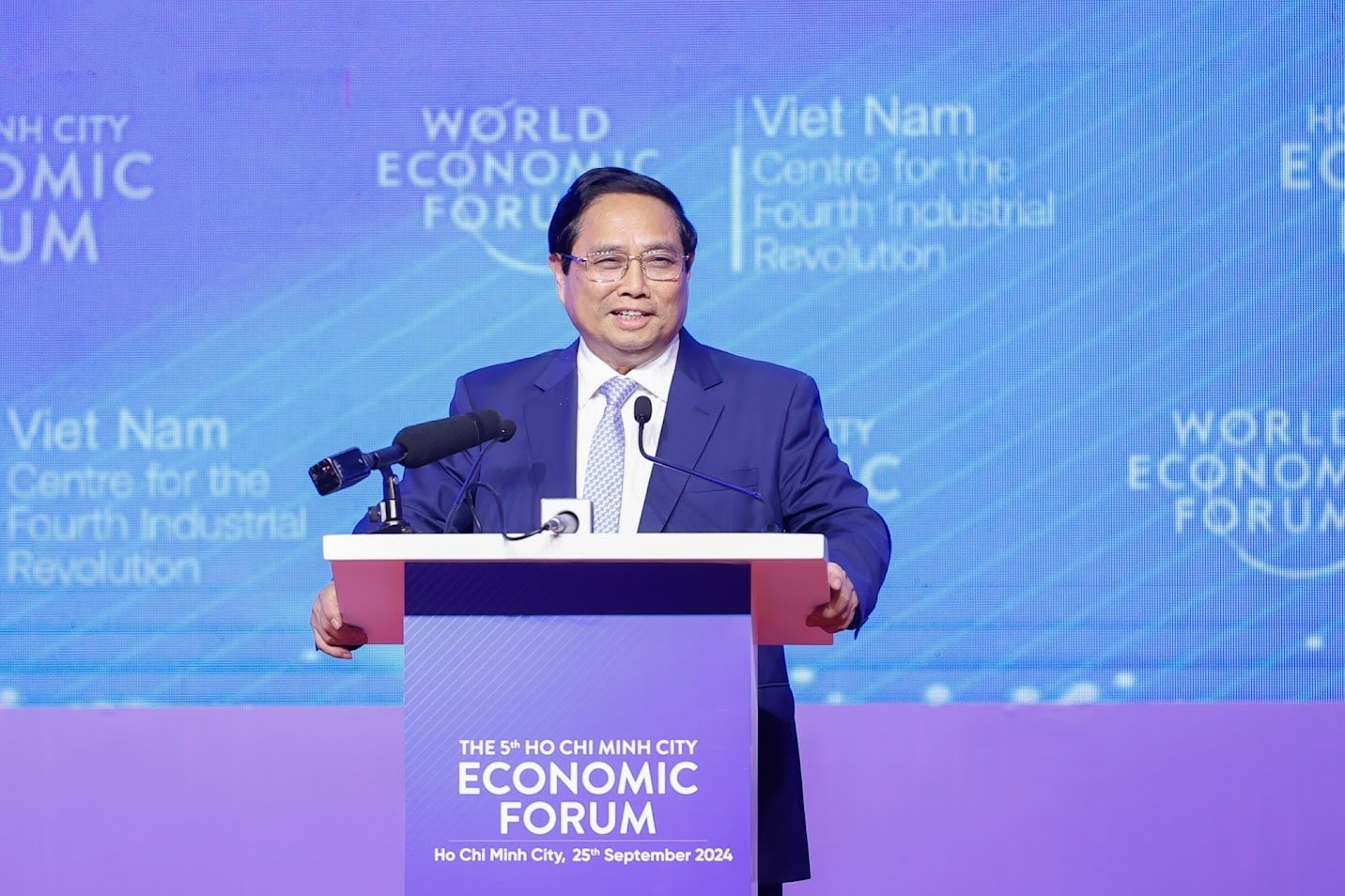
Ho Chi Minh City shoulder the responsibility, more mission, higher
Speaking at the direction, concluding the dialogue, on behalf of the Government of Vietnam, Prime Minister Pham Minh Chinh welcomed Ho Chi Minh City to successfully organize the 5th forum with about 1,500 delegates from many countries, many branches and forums next time better, more comprehensive, more participants than the previous time; Thank you to delegates, representatives of associations, businesses, foreign investors, domestic to participate and cheer for the forum.
Introducing the issue of "why must be converted", the Prime Minister said that the situation of changes must have a proper behavior in accordance with the situation and adapt to the situation to continue developing. In order for effective policies and solutions, it must be firmly grasped the situation, although the current situation is complicated, unpredictable and difficult to guess.
Regarding the context of the current situation, the Prime Minister stated that the world situation can evaluate the general evaluation: Overall is peaceful, but local war has war; Overall is delayed, but local is stressed; Overall is stable, but local conflicts.
The world is facing global, nationwide problems, so there must be a global, nationwide, comprehensive approach to solve them, including the problem of transformation and application of the 4th industrial revolution.
Regarding the issue of Ho Chi Minh City and Vietnam, how to convert and achieve what results, the Prime Minister said that so far, Vietnam has formed a relatively complete theoretical system of socialism and the path to socialism in Vietnam.
Accordingly, Vietnam identified three foundation and pillars including building a socialist democracy; Building a socialist rule of law state, developing a socialist -oriented market economy. In particular, the principle of throughout is to take the people as the center, the subject, the most important resource, the driving force and goals of the development.
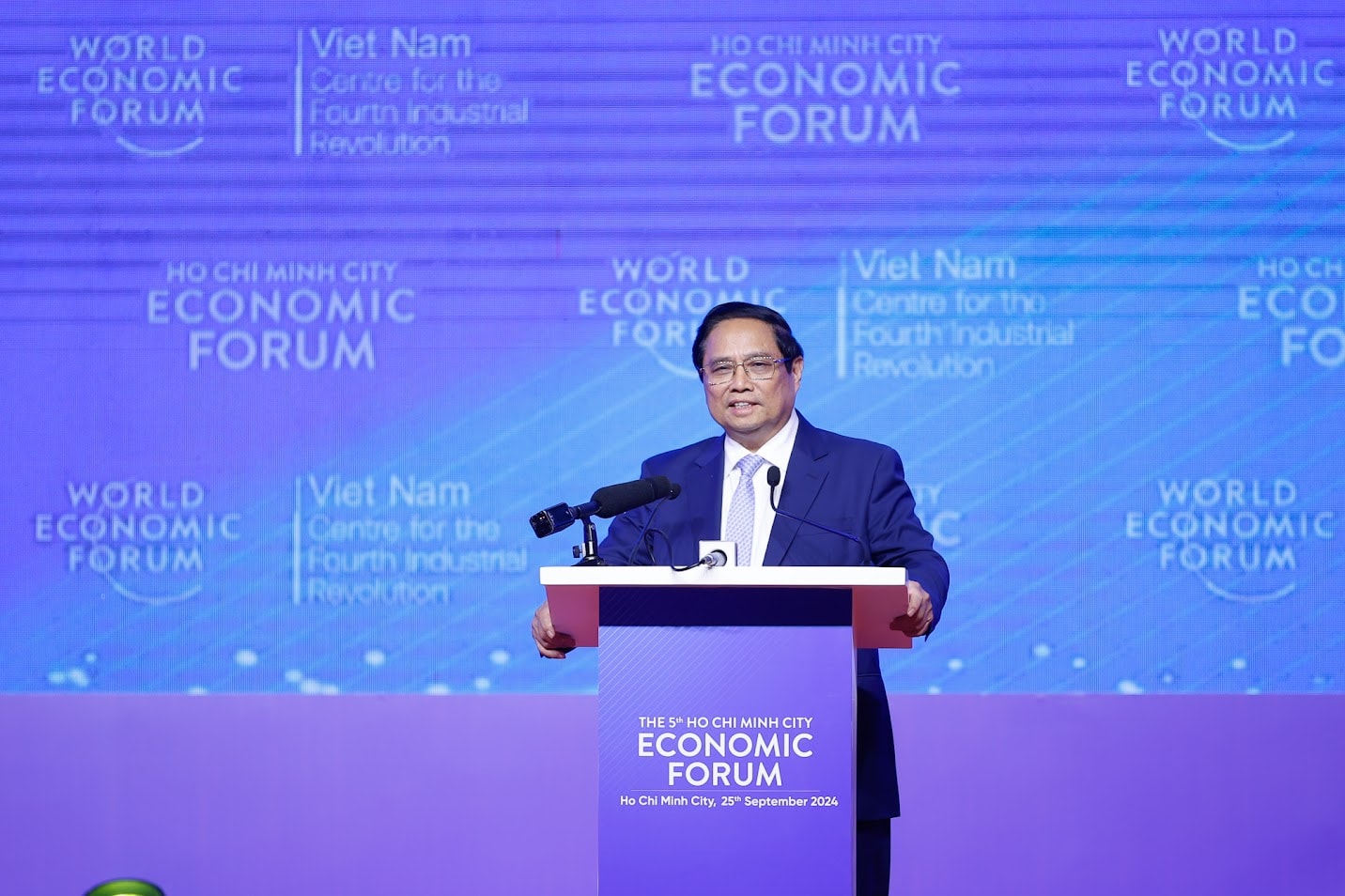
Along with that, Vietnam also identifies the major directions:
Firstly, implement a foreign policy of independence, self-reliance, peace, friendship, cooperation and development, diversification, multilateralization, being a good friend, a reliable partner, and an active and responsible member of the international community.
Second, economic development is the central task, building an independent, self-reliant economy, actively and proactively integrating deeply, substantially and effectively into the international economy, taking internal resources (human, natural resources, cultural traditions, history) as fundamental, strategic, long-term and decisive, and external resources (capital, science and technology, management, high-quality human resources) as important and breakthrough.
Third, consolidate and strengthen national defense and security; protect independence, sovereignty, unity and territorial integrity. Build a solid national defense posture, people's security posture, and people's hearts posture. Implement the "4 no's" defense policy.
Fourth, ensure social security, improve people's lives; do not sacrifice progress, social justice, and environmental protection to pursue mere economic growth.
Fifth, build an advanced culture with strong national identity. Culture is the spiritual foundation of society, both a goal and an endogenous strength, an important driving force for national development. Culture shows the way for the nation. If culture exists, the nation exists; if culture is lost, the nation is lost.
Sixth, build a clean, strong, and comprehensive ruling Party. Strengthen the fight against corruption and negativity. Implement the policy of great national unity and create social consensus.
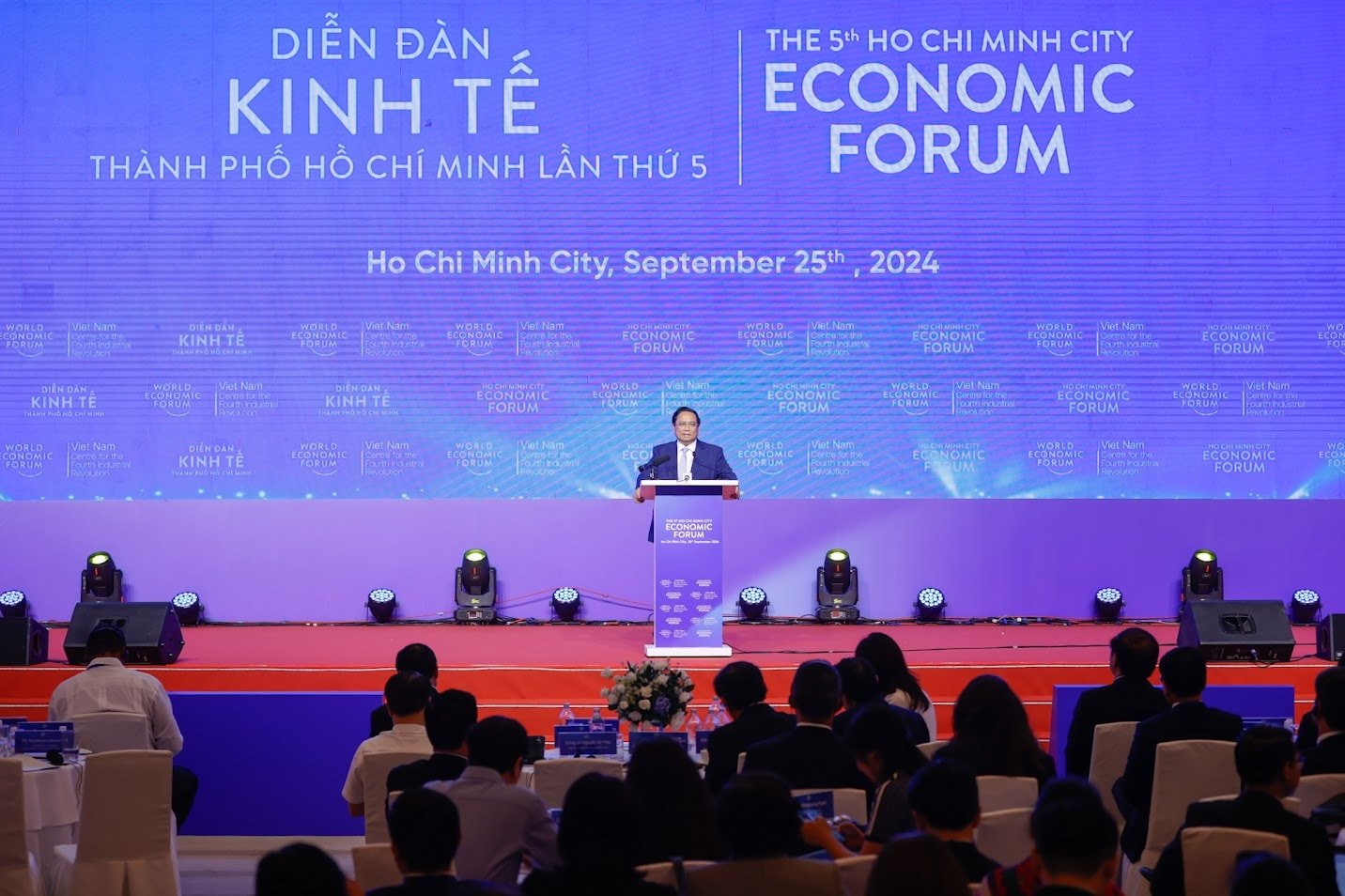
The Prime Minister said that in Vietnam's overall transformation, there is industrial transformation, green transformation, and digital transformation.
Regarding the achieved results, the Prime Minister mentioned a number of numbers such as GDP size in 2023 reaching about 433 billion USD, ranking 34 in the world, located among the 20 largest economies in terms of international trade scale, per capita income from around US $ 100 when starting to increase to about 4.30 USD. Macroeconomic economy is stable, large balances are guaranteed.
In the first 6 months of 2024, Vietnam's GDP grew by 6.42%. Right after Typhoon Yagi, the Government had solutions to overcome the situation and expected the GDP for the whole year to reach 7%.
In the overall achievement of the whole country, the Prime Minister assessed that Ho Chi Minh City is always at the forefront of innovation, always a growth center, pioneering in many fields, in renovating mechanisms, policies, sustainable socio -economic development, social security, taking care of people's lives.
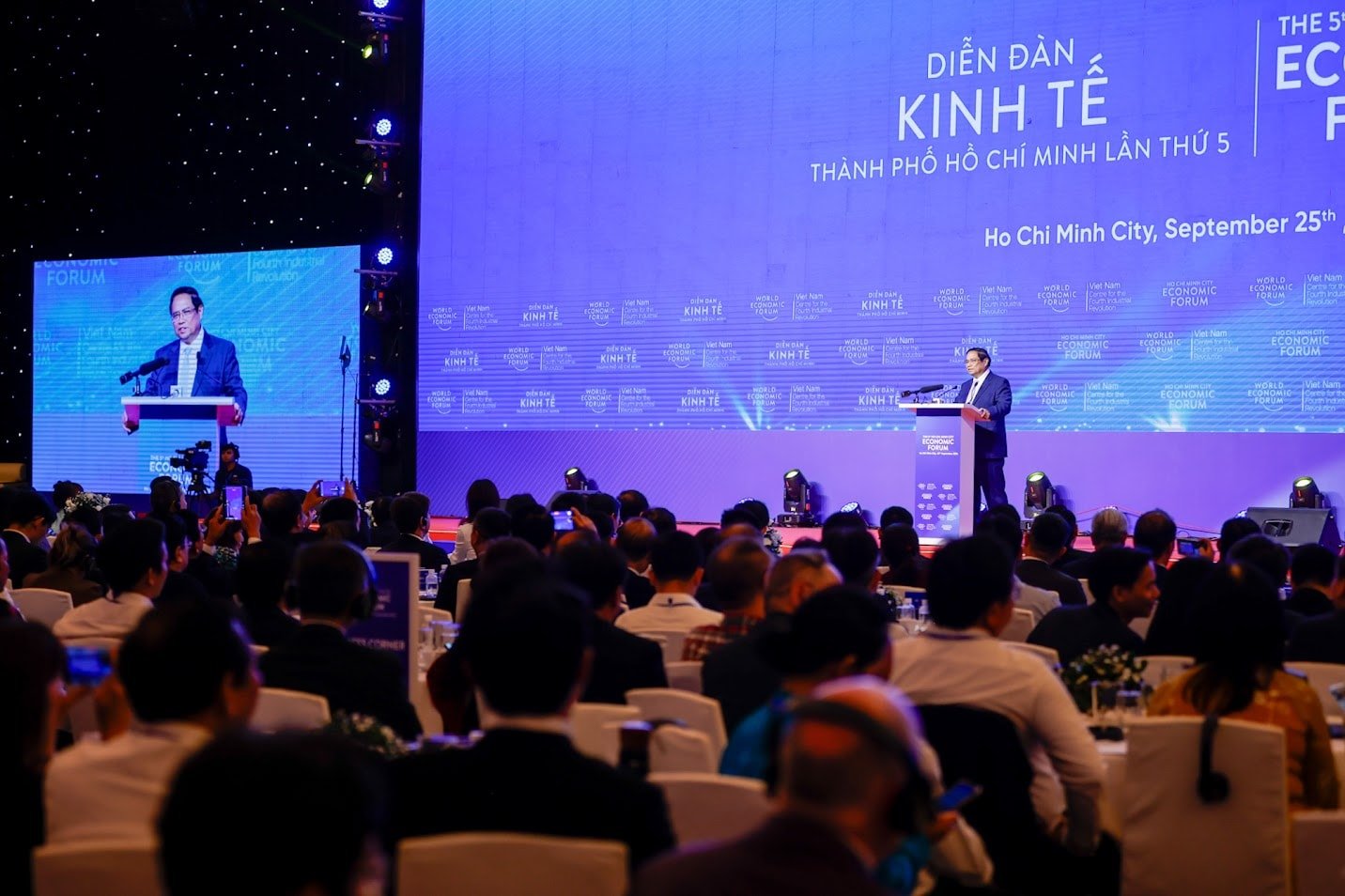
Through attending the forum, the Prime Minister agreed with the opinions of the delegates on the requirement of comprehensive industrial conversion in Ho Chi Minh City, building a civilized, modern city, on a historic level, the people next year always happily and prosperous than the previous year, harmonizing between nature and people, between economy, society and environment.
The Prime Minister believes that with the glorious tradition, the efforts of Ho Chi Minh City, the support of the central government, the friends, international partners, the participation of people and businesses, Ho Chi Minh City will definitely achieve the above goal.
The head of the Government said that the conversion of industry must both refresh the traditional industries (such as mechanical manufacturing, chemicals ...), and to develop new industries with a broader concept, related to new fields such as digital economy, green economy, shared economy, circulating economy, knowledge economy, night economy.
In order to do this, the Prime Minister stated that, must build and improve the institution, recently Ho Chi Minh City has been issued a resolution on a number of specific mechanisms and policies. Along with that, developing synchronous and modern infrastructure; focus on training high quality human resources; Smart management. In addition, there must be solutions to mobilize resources through promoting public -private partnership, this Ho Chi Minh City has conditions to do and must be done.
Regarding the responsibilities of the Government and ministries, the Prime Minister stated that it is necessary to build institutions with Ho Chi Minh City; prioritize mechanisms and policies to continue promoting the City's resources; build a common strategy for the whole country, including a separate strategy and specific mechanisms for Ho Chi Minh City because the City shouldered more and higher responsibilities and missions.
For businesses, the Prime Minister called for a spirit of harmonizing interests and sharing risks; harmonizing interests between the State, businesses and people.
Ho Chi Minh City must build smooth infrastructure, open institutions, smart management, facilitate investors, strengthen businesses and improve the environment, invest in business, improve competitiveness. The success of investors is the success of Ho Chi Minh City and Vietnam.
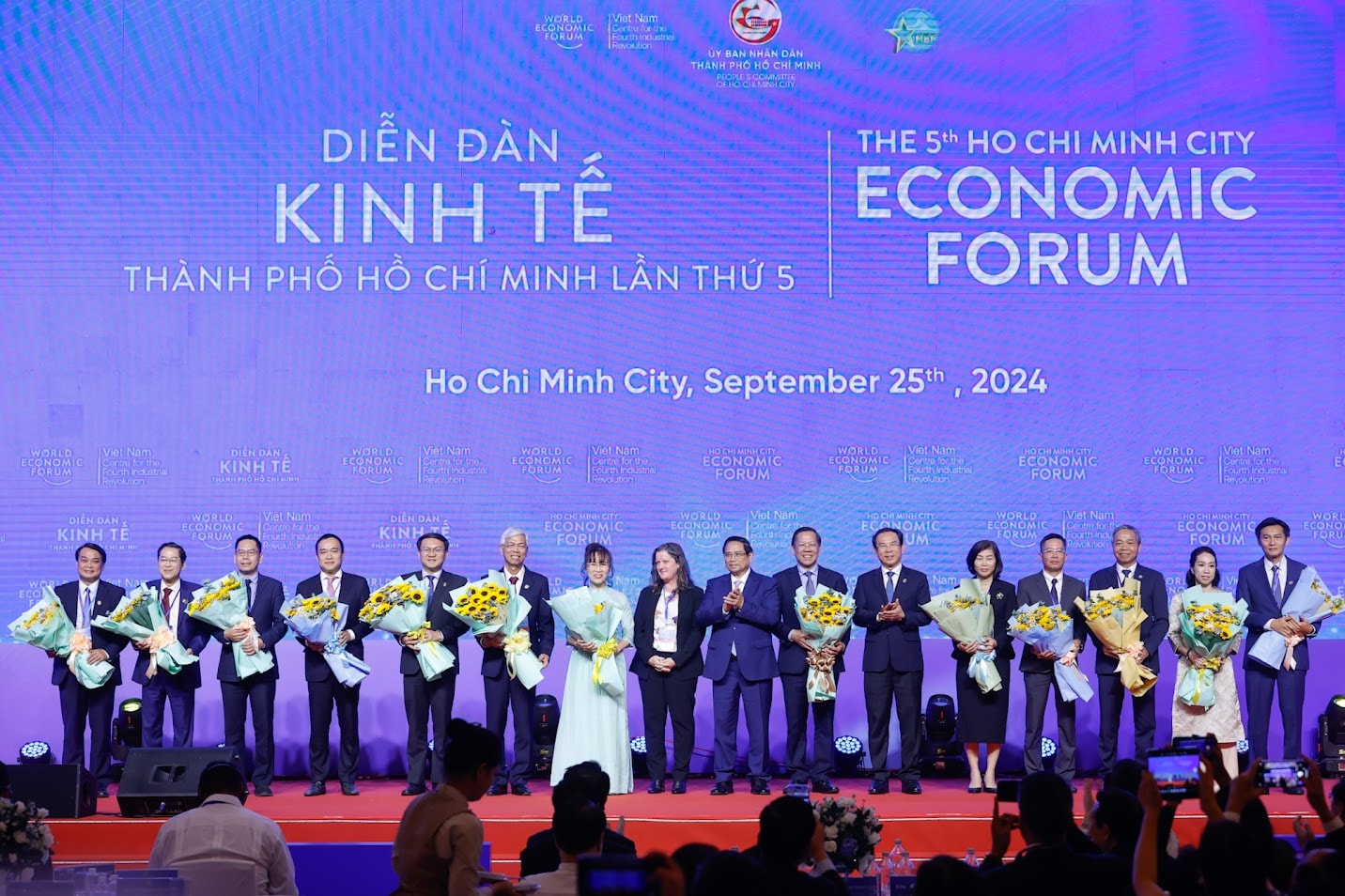
A repeated Prime Minister, Vietnam is committed to not criminalizing economic and civil relations, protecting the legitimate and legitimate rights and interests of businesses and investors, but resolutely handling violations of law such as smuggling, tax evasion ...
The Prime Minister expected development partners to support Ho Chi Minh City and Vietnam on: Financial incentives; gradually transfer technology for Vietnam to participate in the value chain, global supply; contribute to human resource training; improve modern and intelligent management capacity; contribute to building and perfecting institutions.
The Prime Minister said that in the process of development, there will inevitably be conflicts that need to be resolved, difficulties and challenges that need to be overcome. The important thing is to listen, understand, share vision and action, work together, enjoy together, win together and develop together, have joy, happiness and pride together.
The Prime Minister believed that after this forum, the delegates harvested many things, in which the biggest thing was sincerity, affection and trust to discuss frankly, comment with the spirit of construction.
The Prime Minister suggested Ho Chi Minh City and relevant ministries and branches according to the functions, tasks, competence to research and review the opinions, presentations and proposals of businesses, investors and experts and scientists to soon settle, handle and absorb and perfect mechanisms and policies.
The Government Portal will live broadcast the dialogue session to serve readers.
Source: https://baotainguyenmoitruong.vn/tong-thuat-dien-dan-kinh-tan-tphcm-2024-thu-tuong-chinh-phu-chu-tri-phien-doi-doai-chinh-sach-380630.html



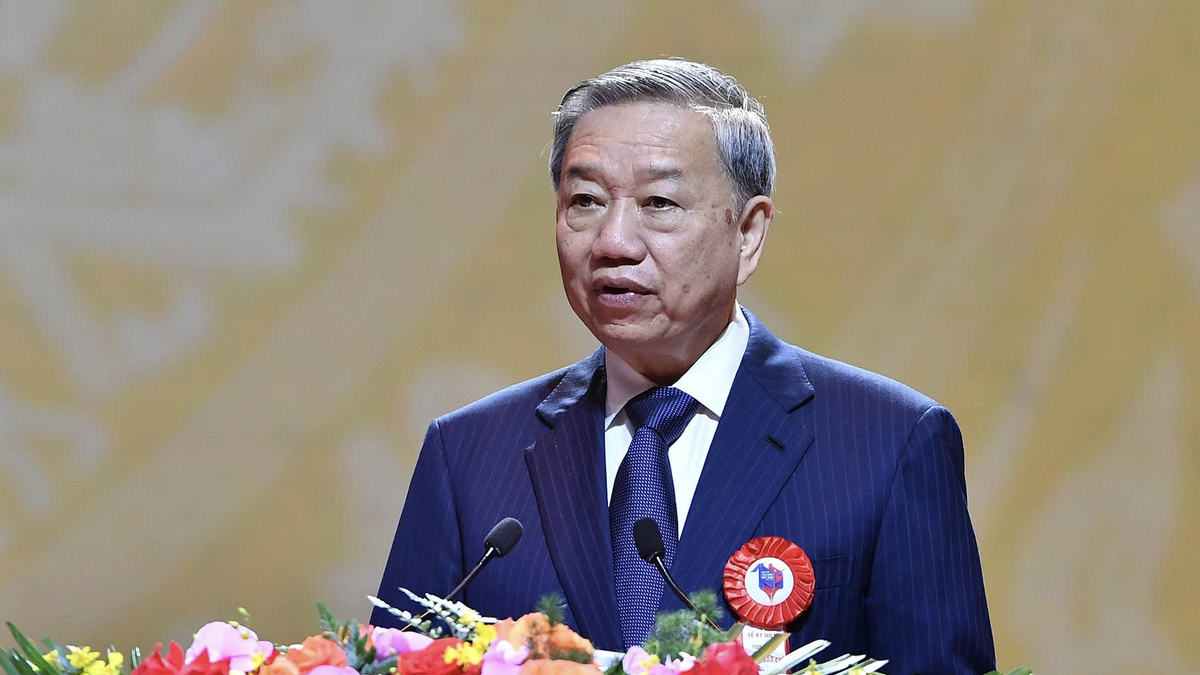




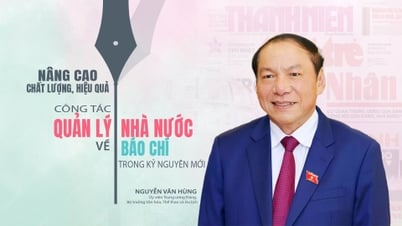





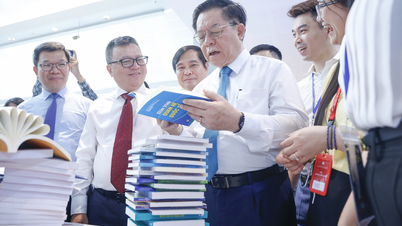

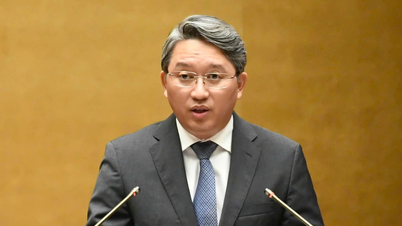










![[Photo] Central Propaganda and Mass Mobilization Department meets with exemplary journalists](https://vphoto.vietnam.vn/thumb/1200x675/vietnam/resource/IMAGE/2025/6/21/9509840458074c03a5831541450d39f8)


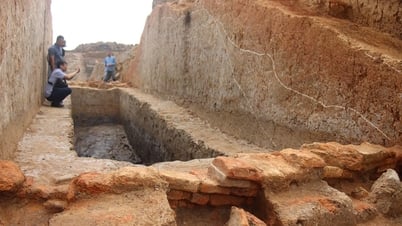

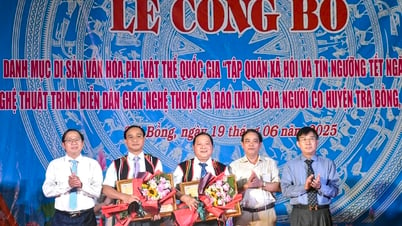






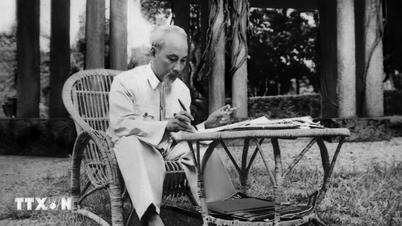

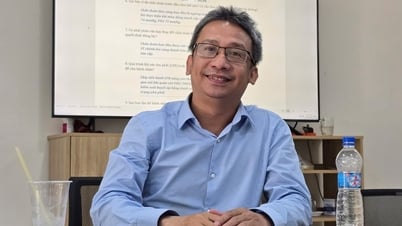


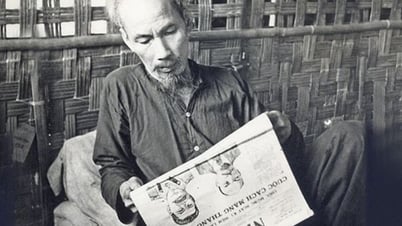
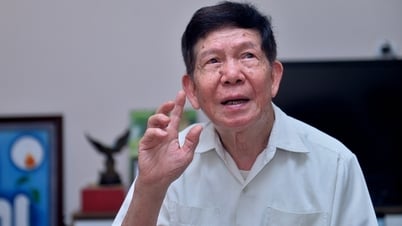







![[Maritime News] Wan Hai Lines invests $150 million to buy 48,000 containers](https://vphoto.vietnam.vn/thumb/402x226/vietnam/resource/IMAGE/2025/6/20/c945a62aff624b4bb5c25e67e9bcc1cb)


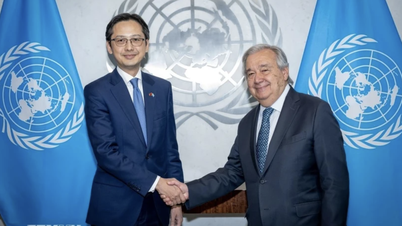
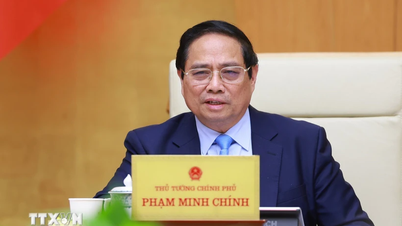







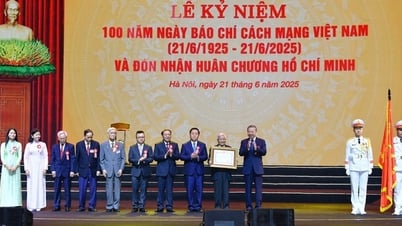
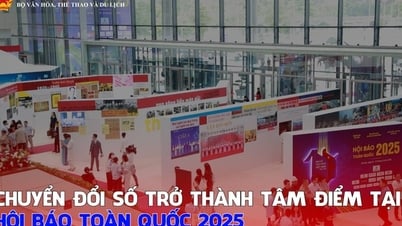

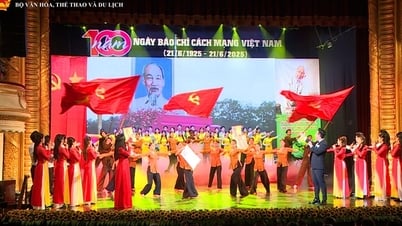
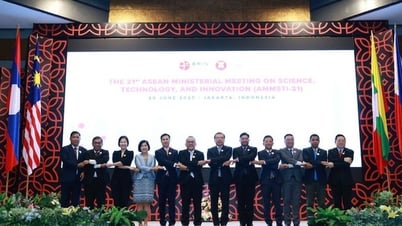



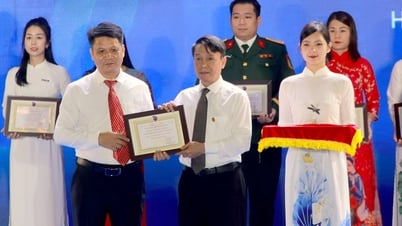



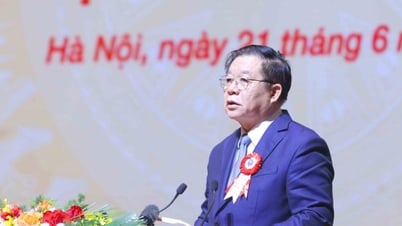

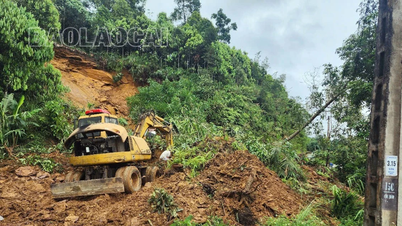











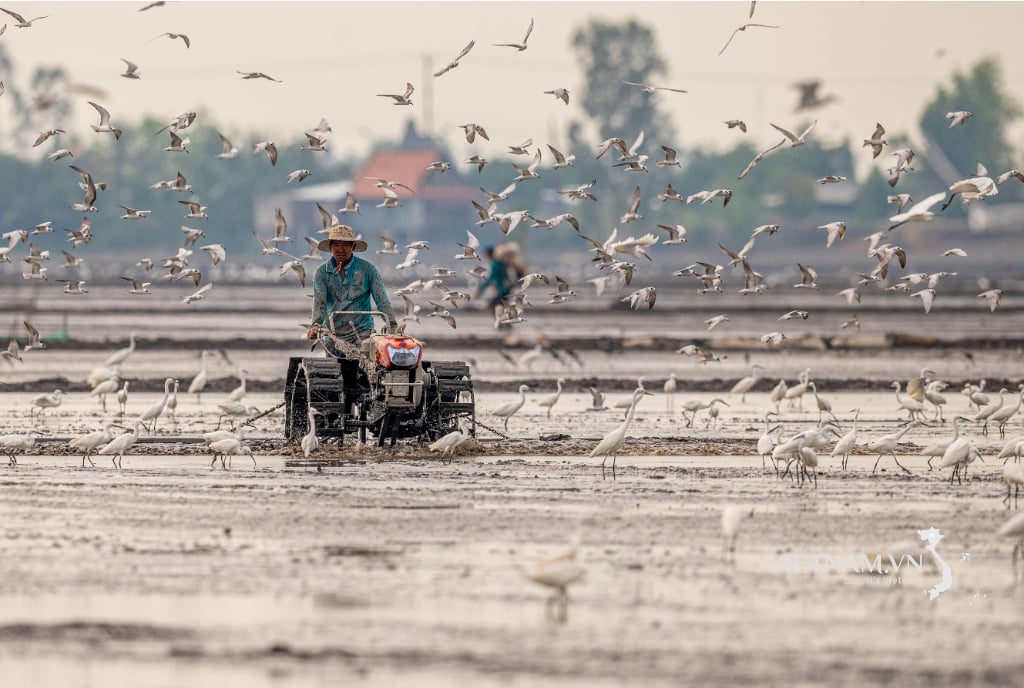
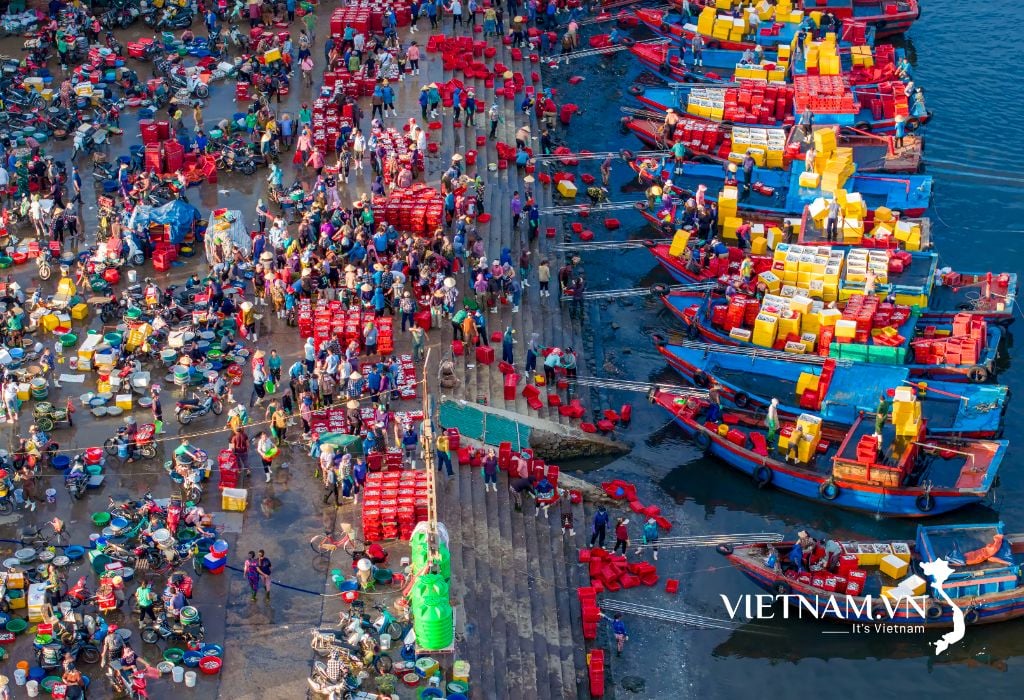

Comment (0)